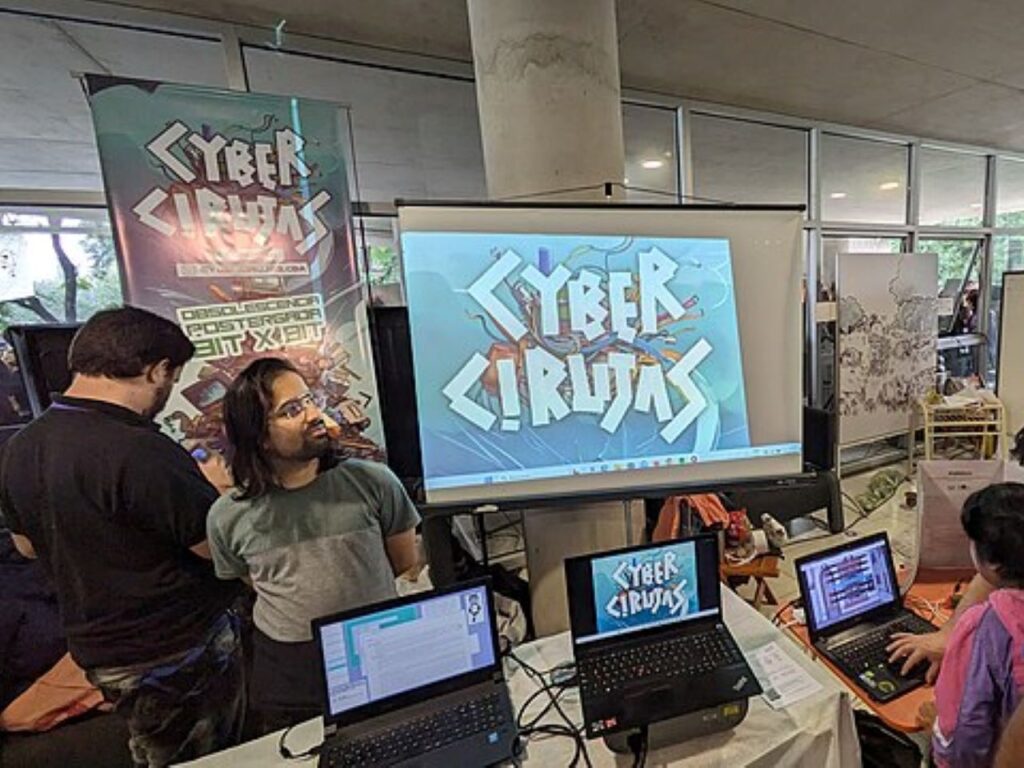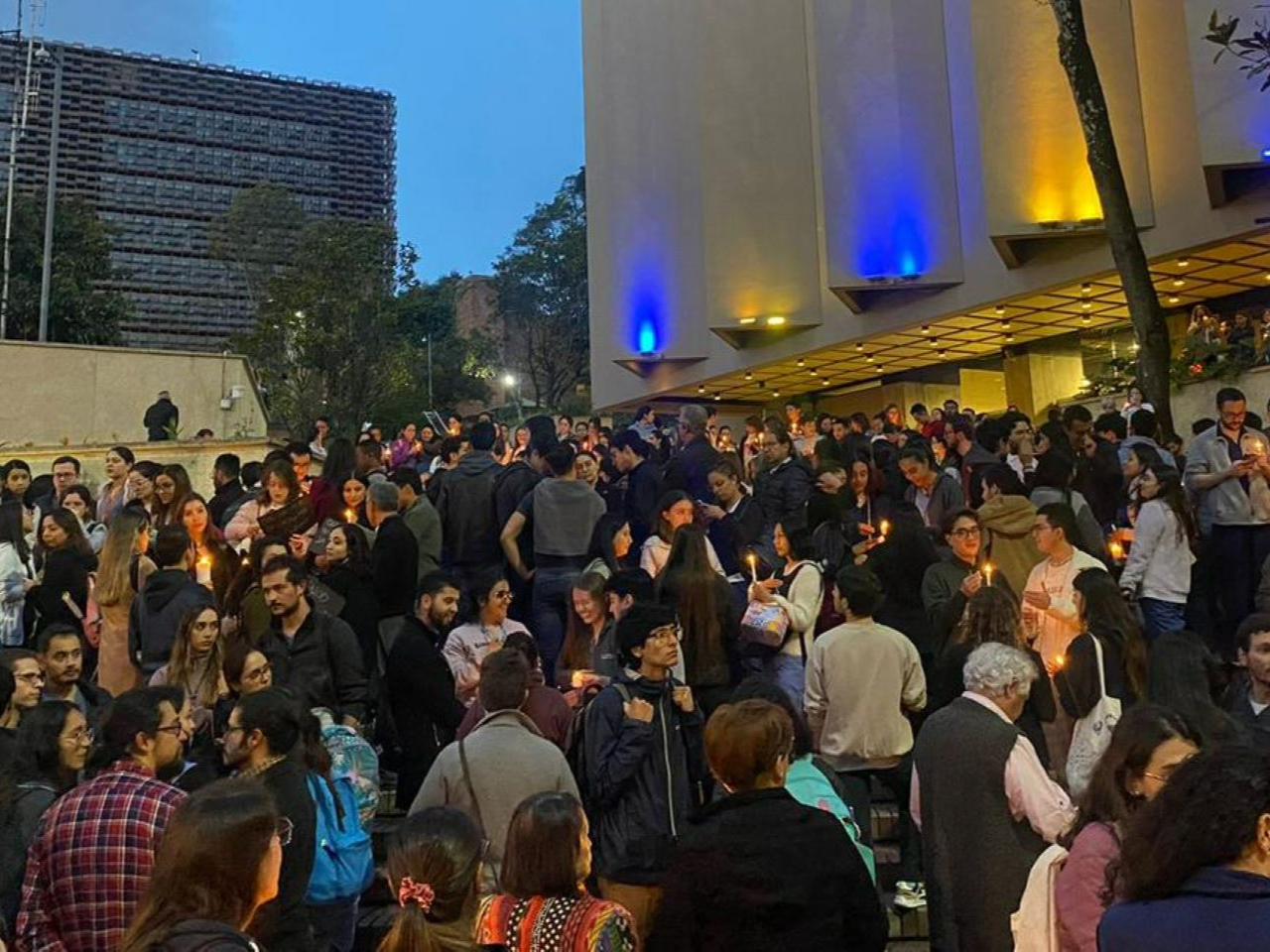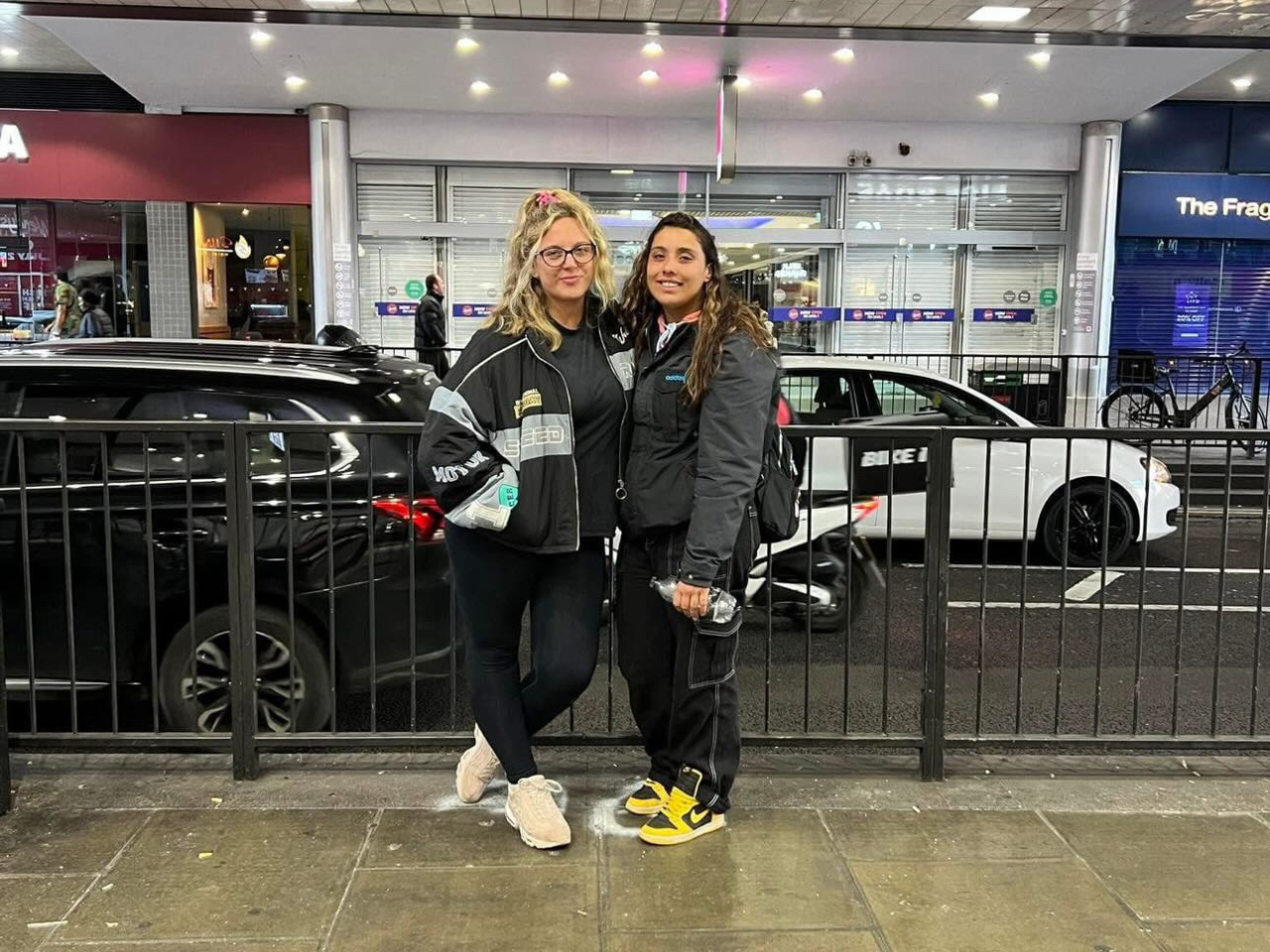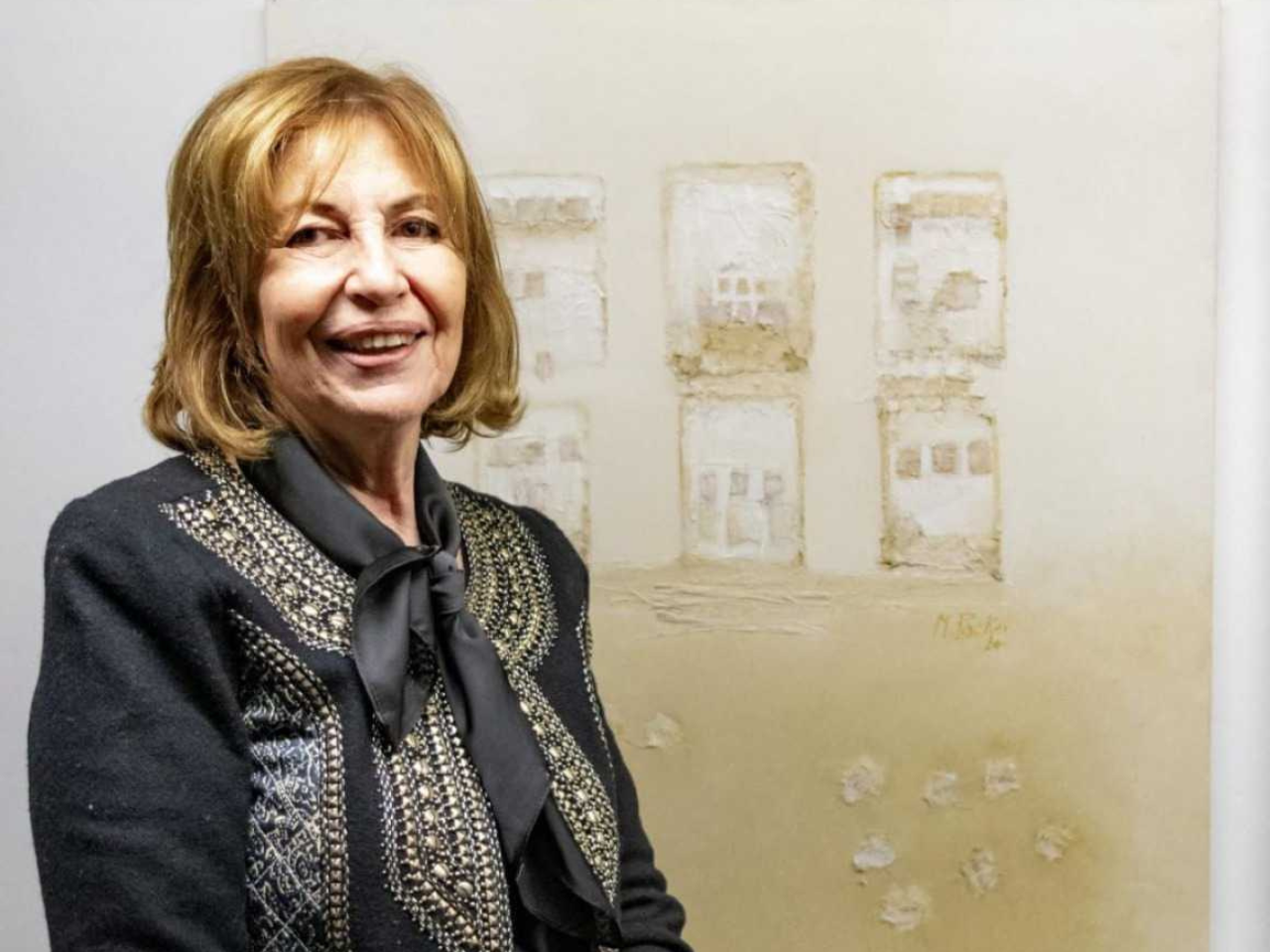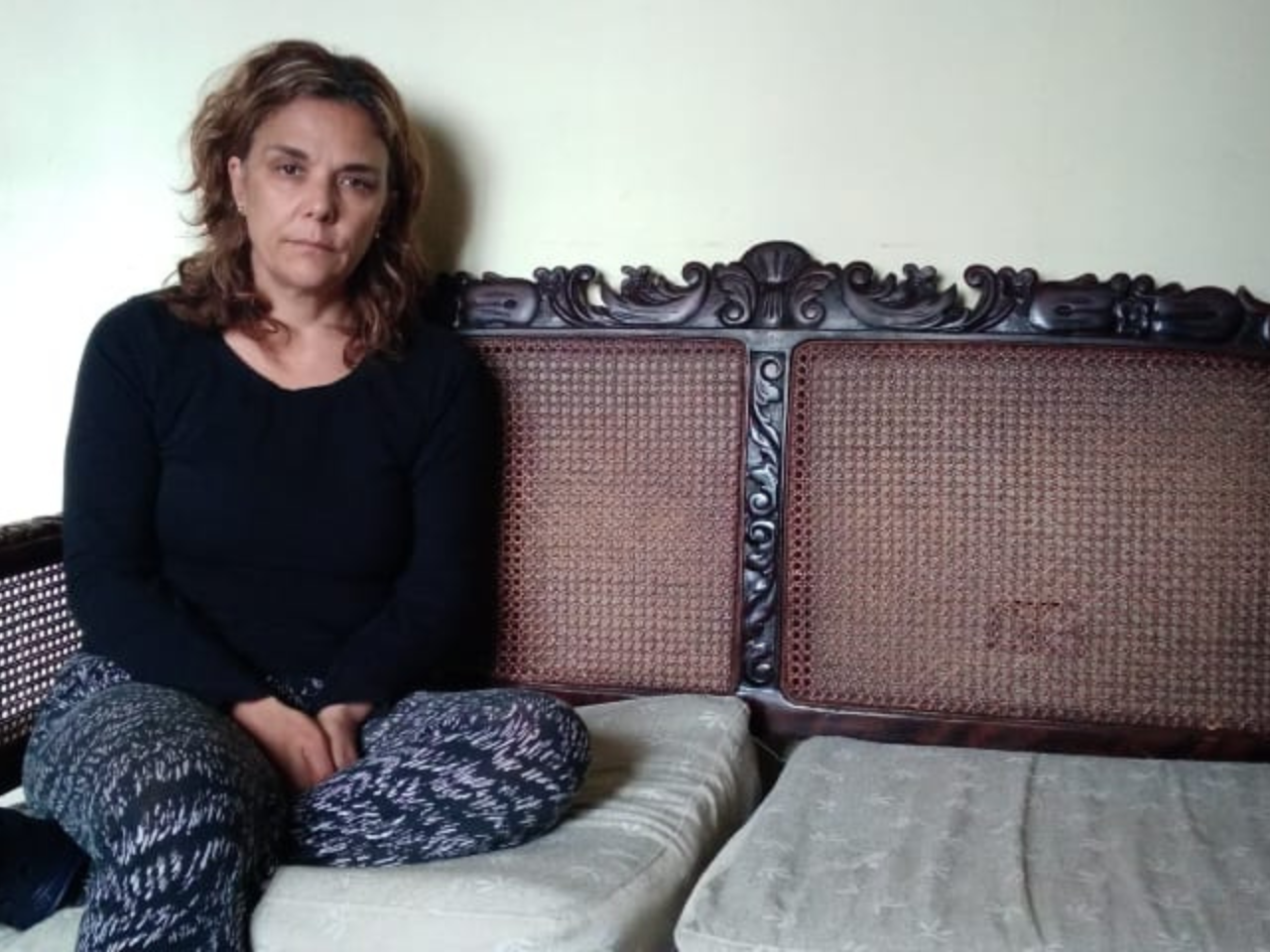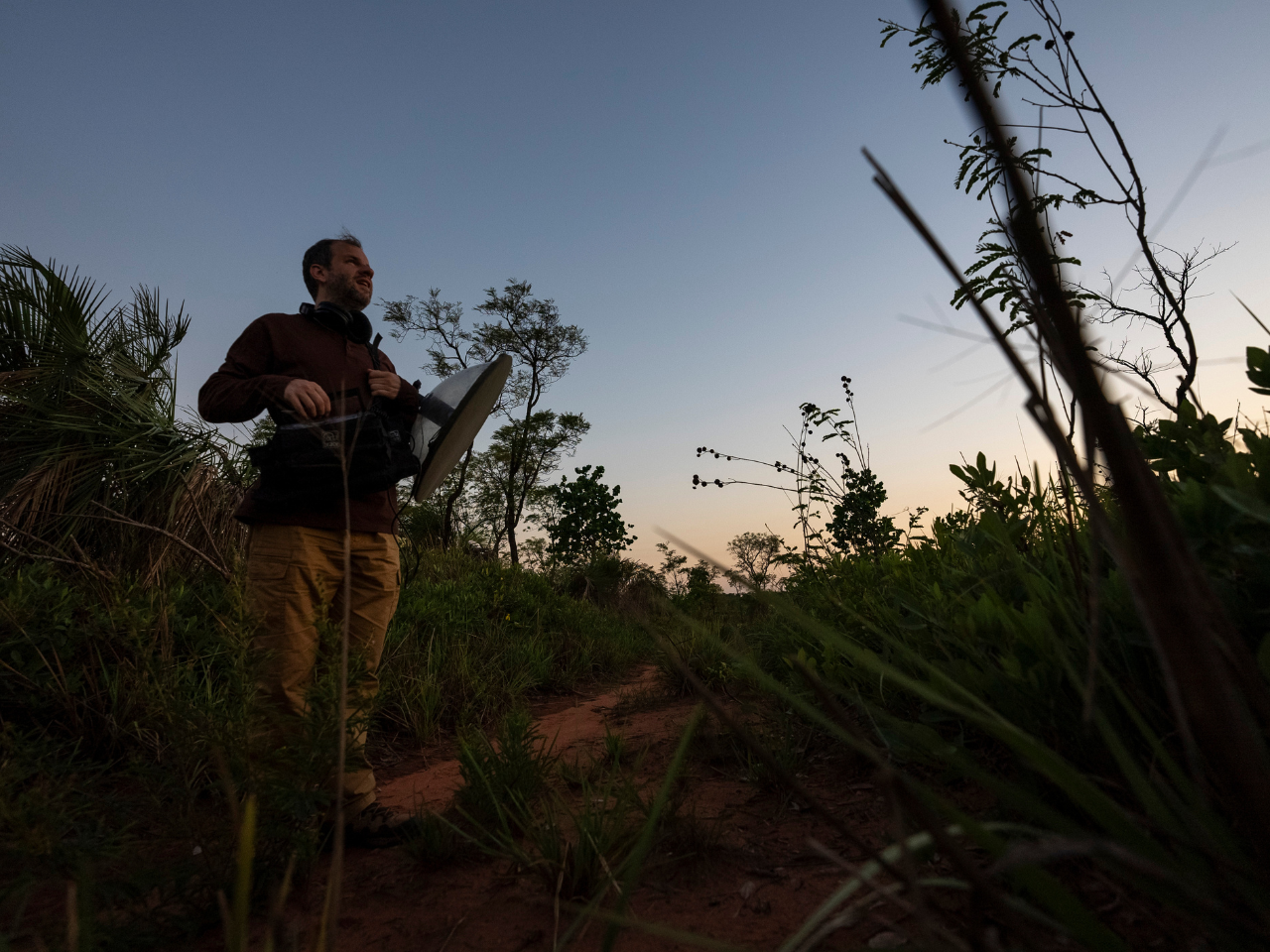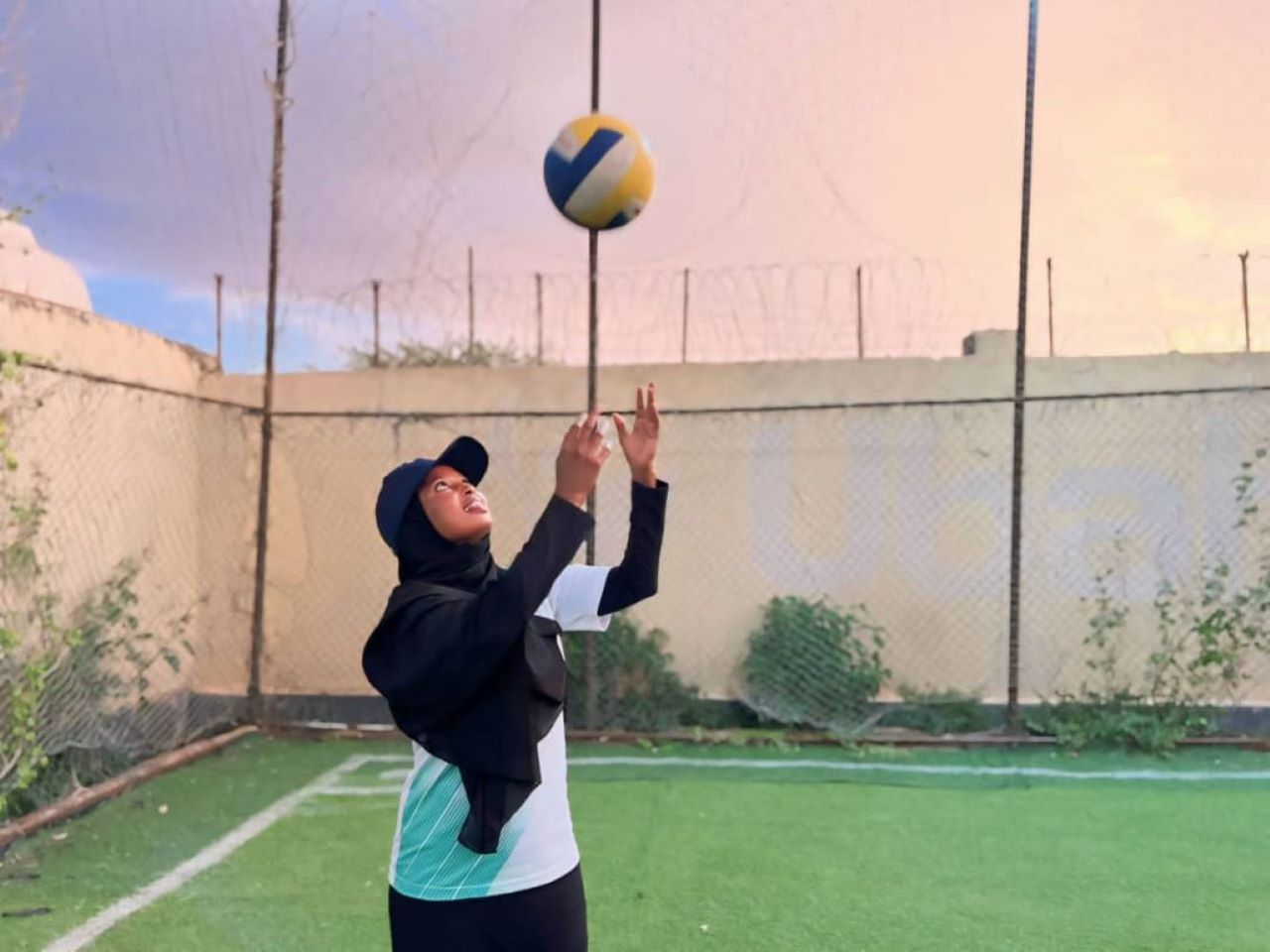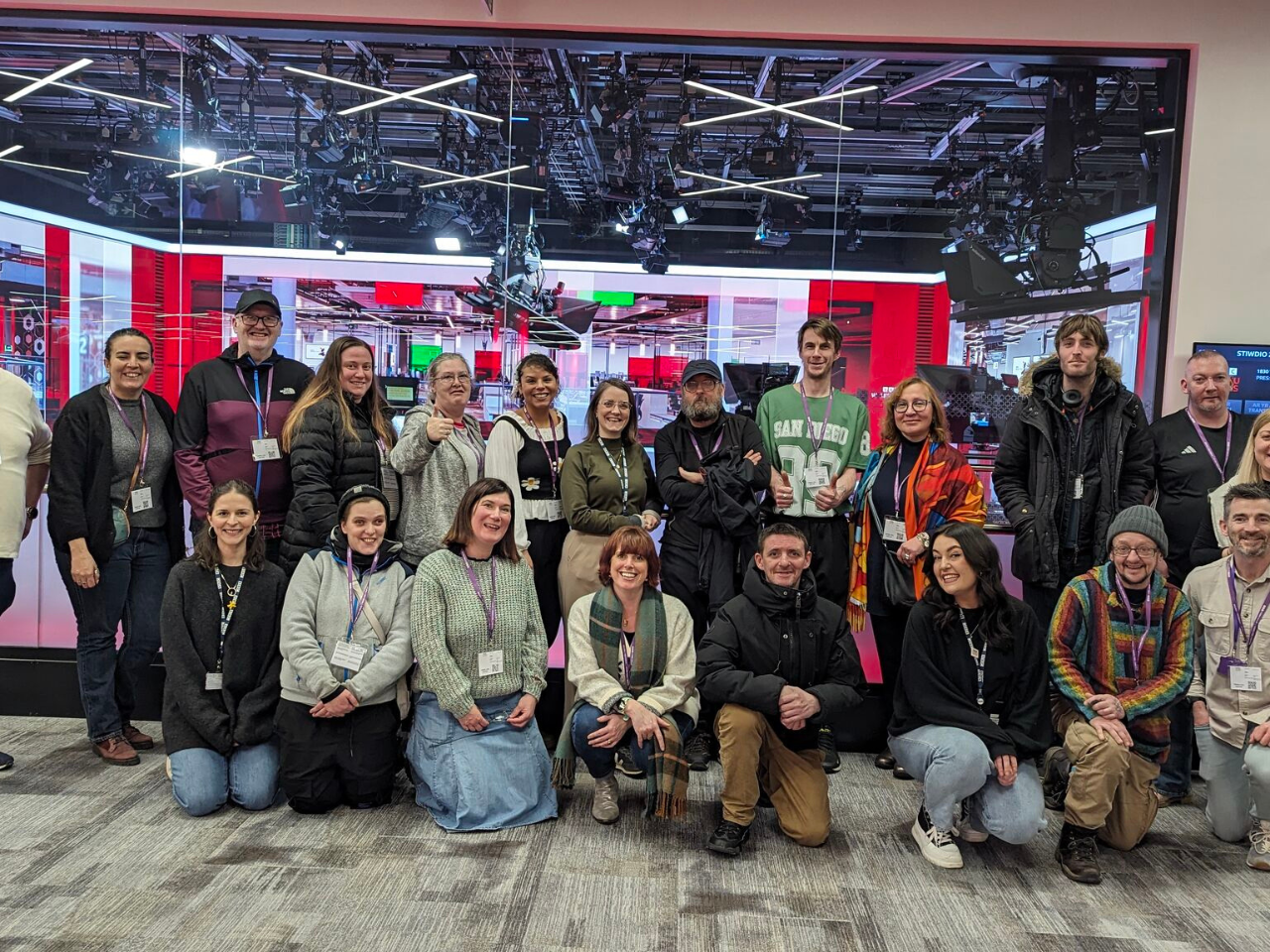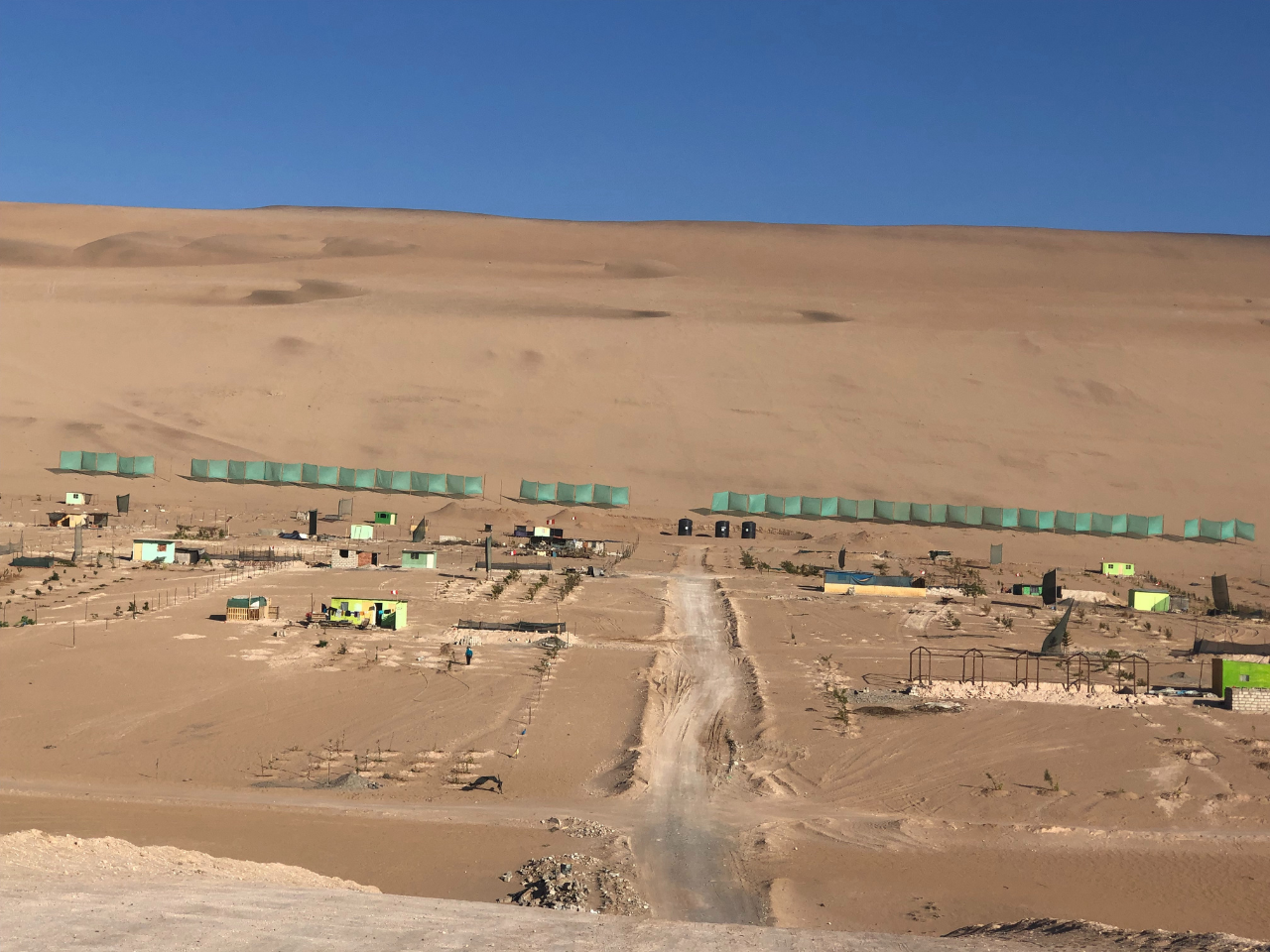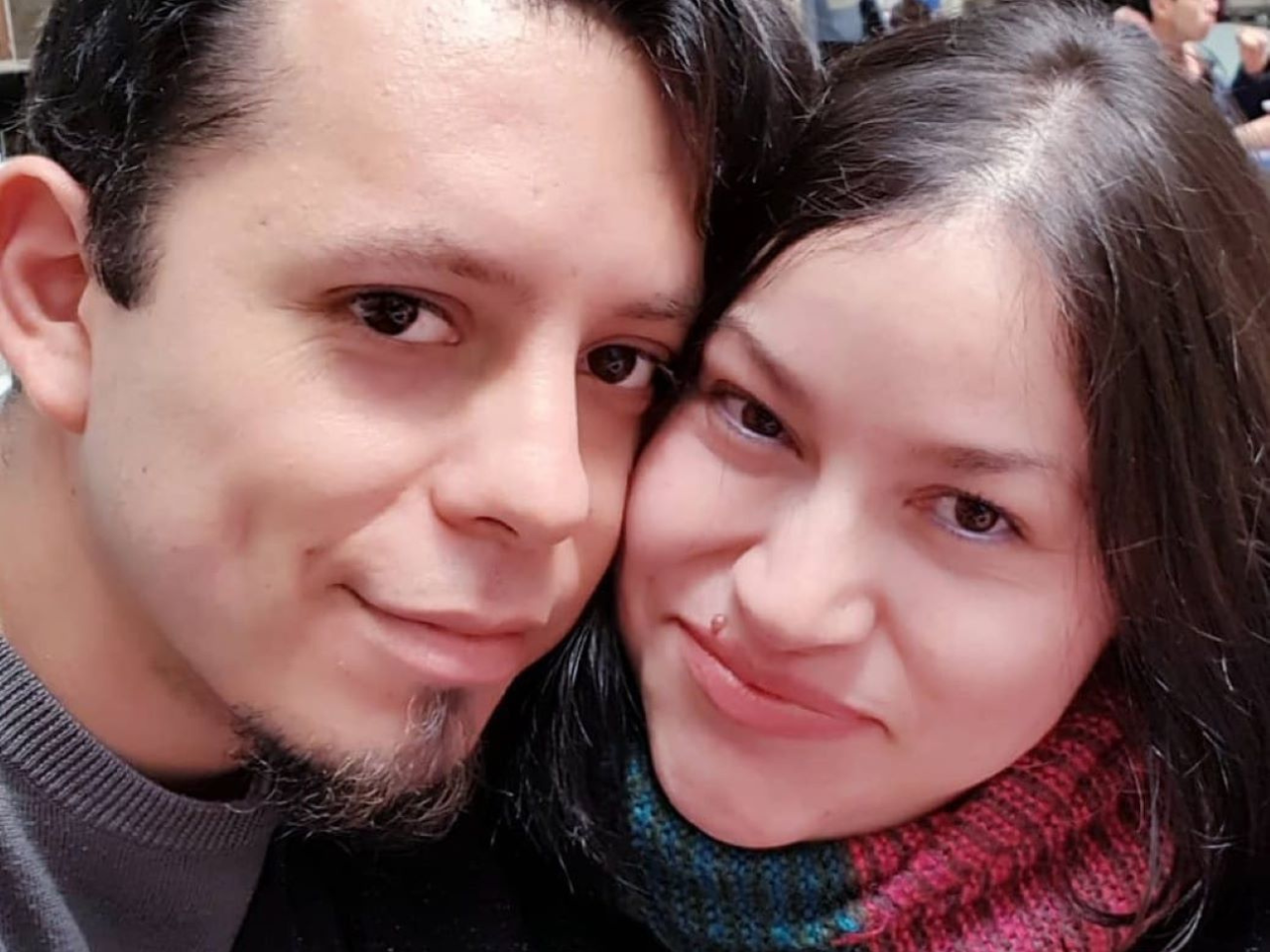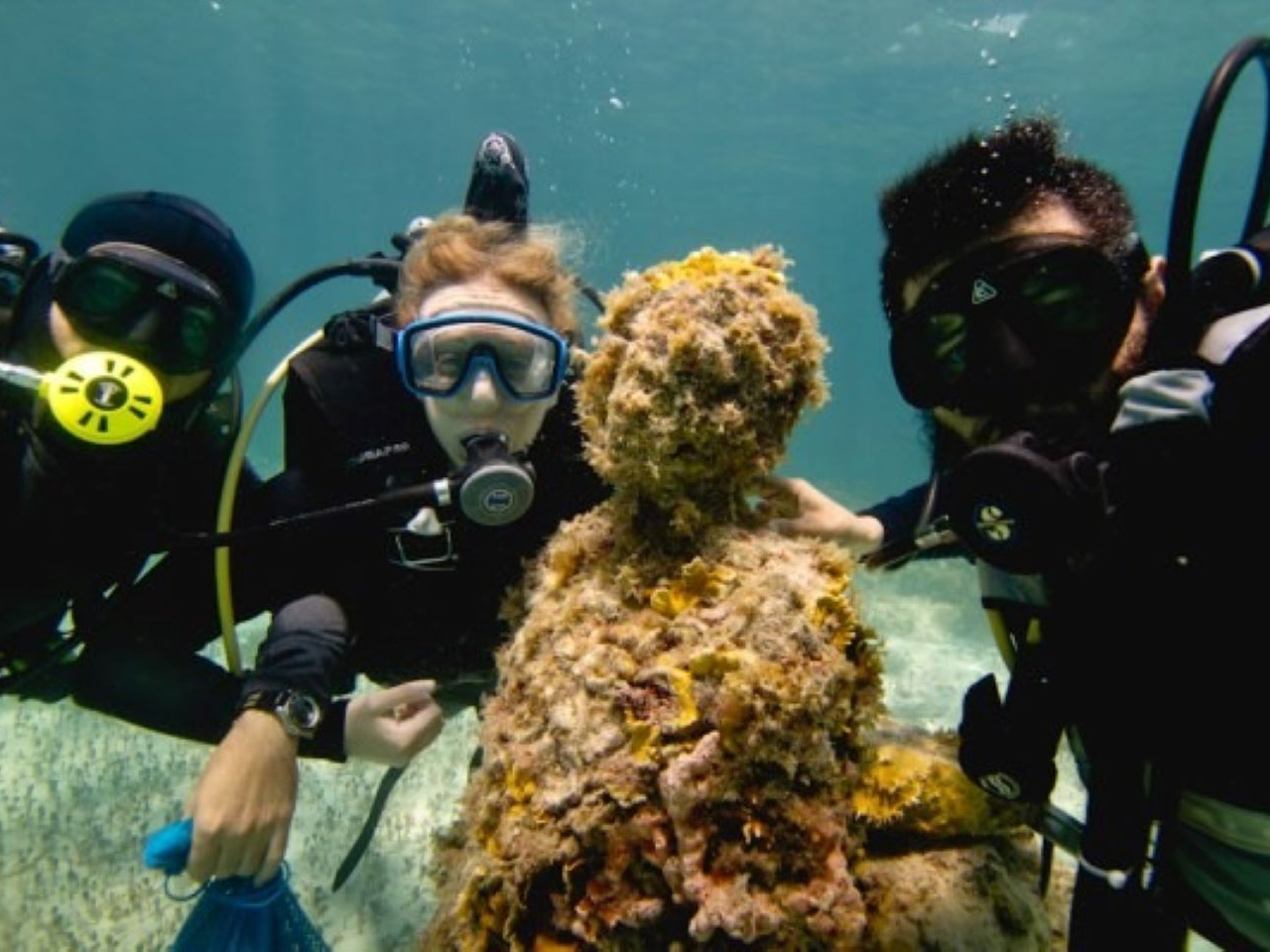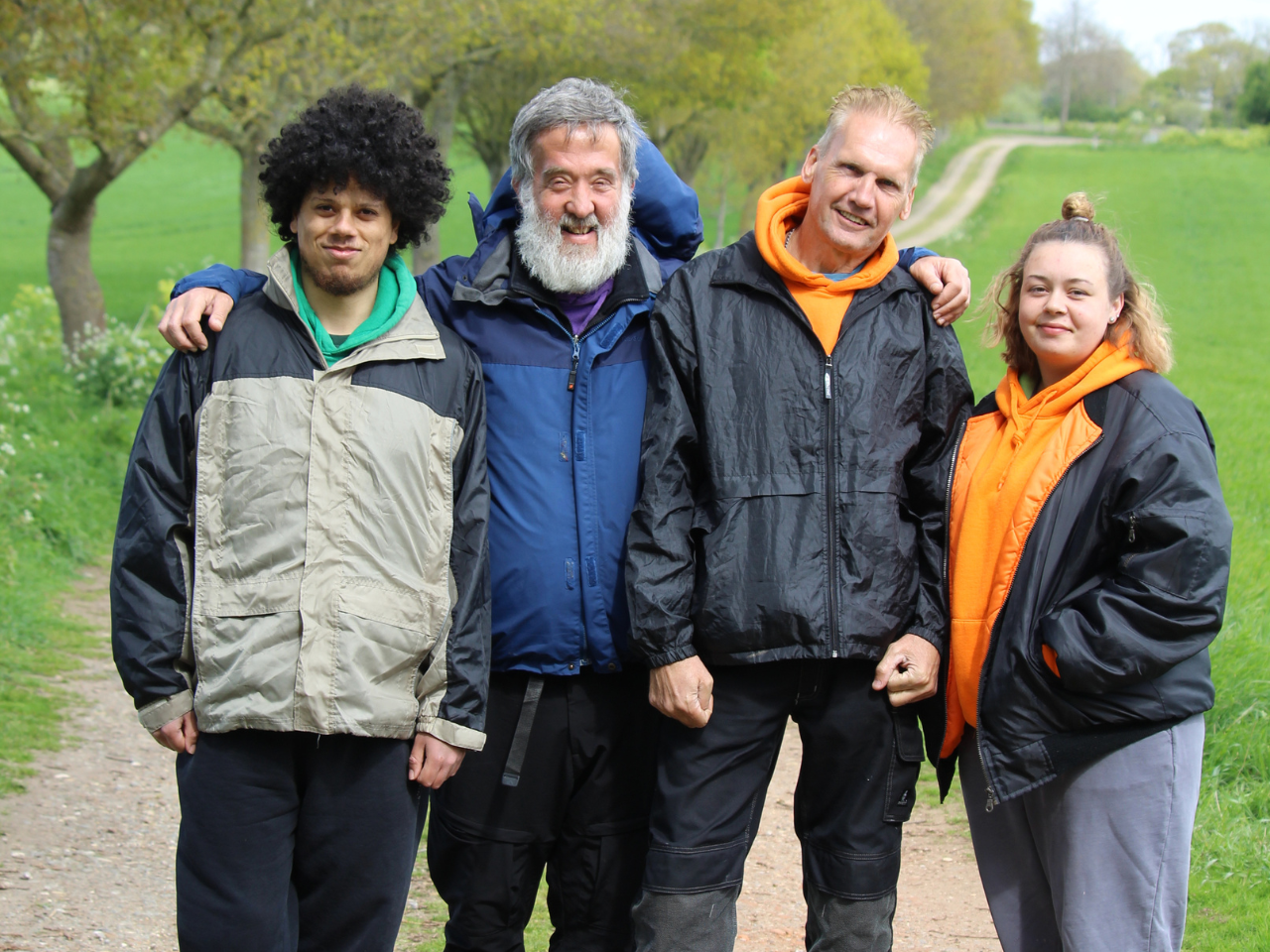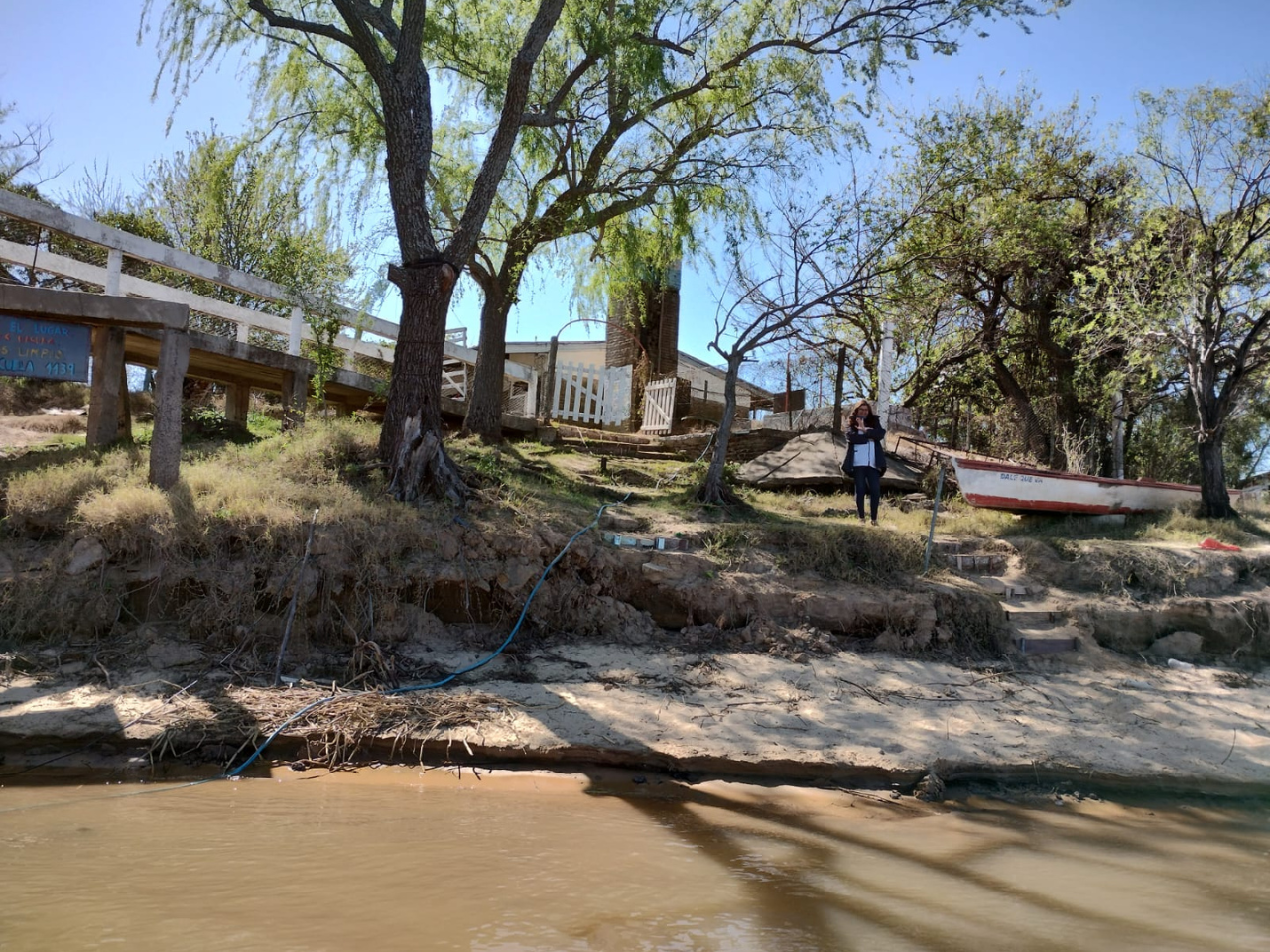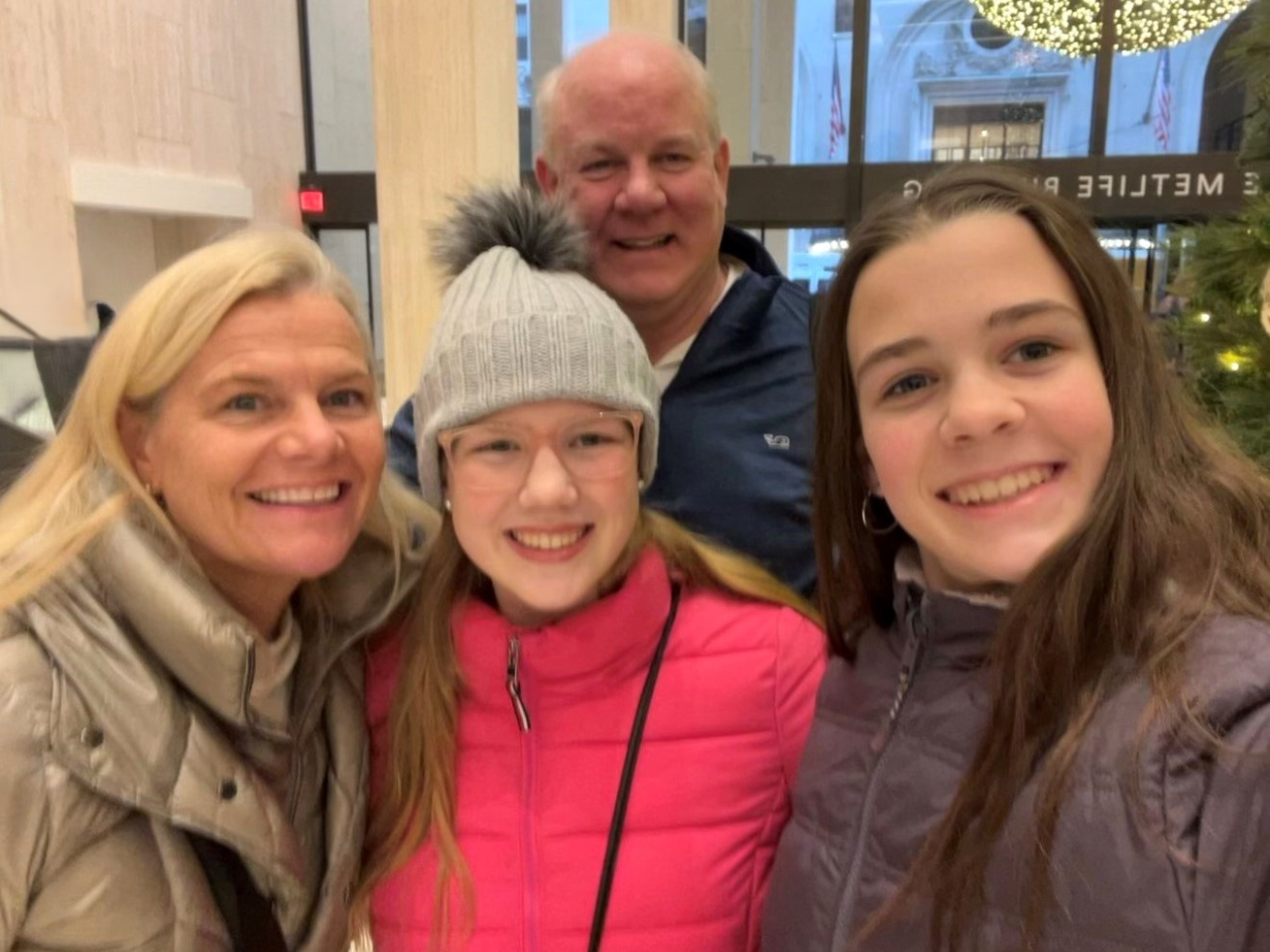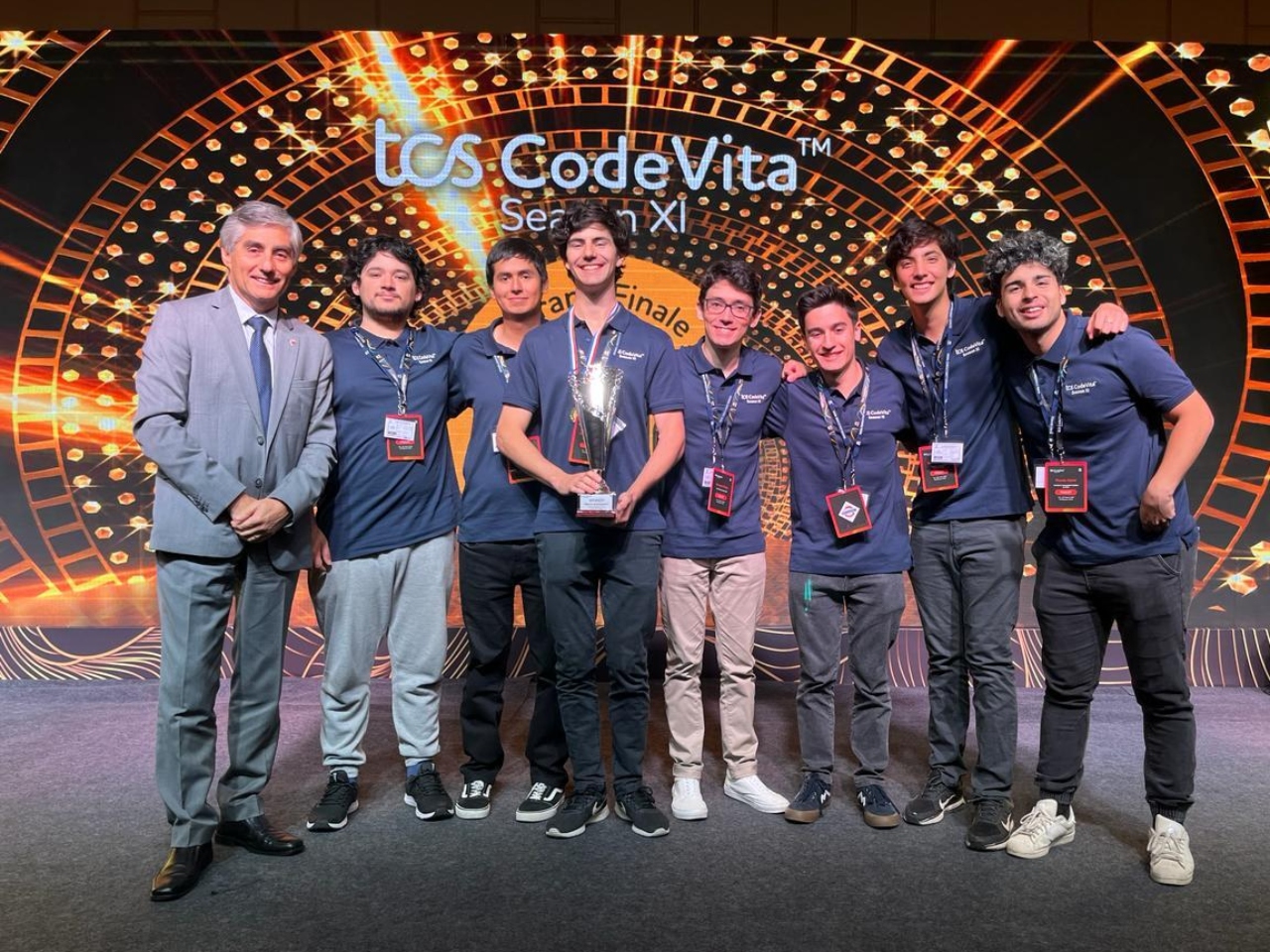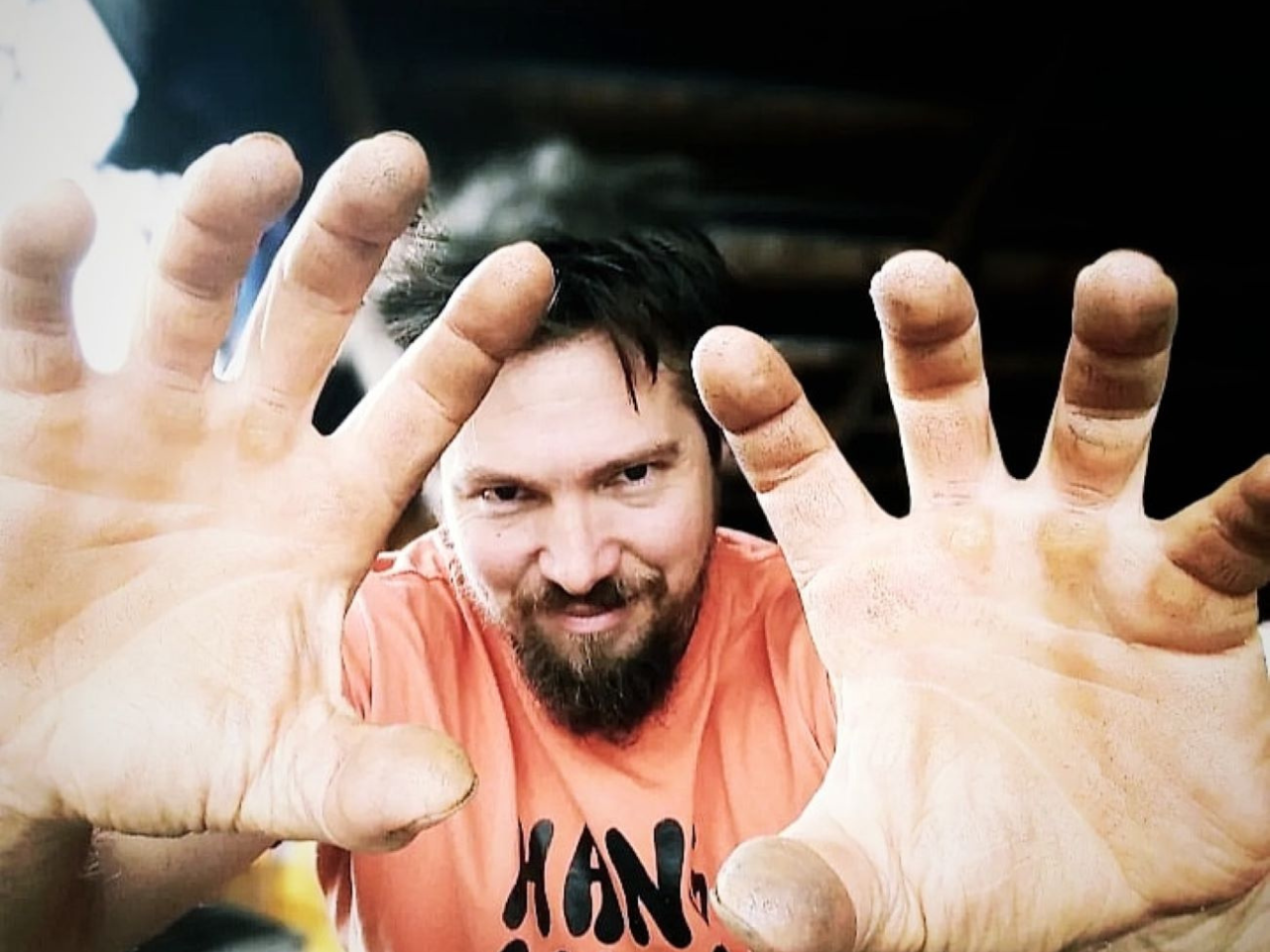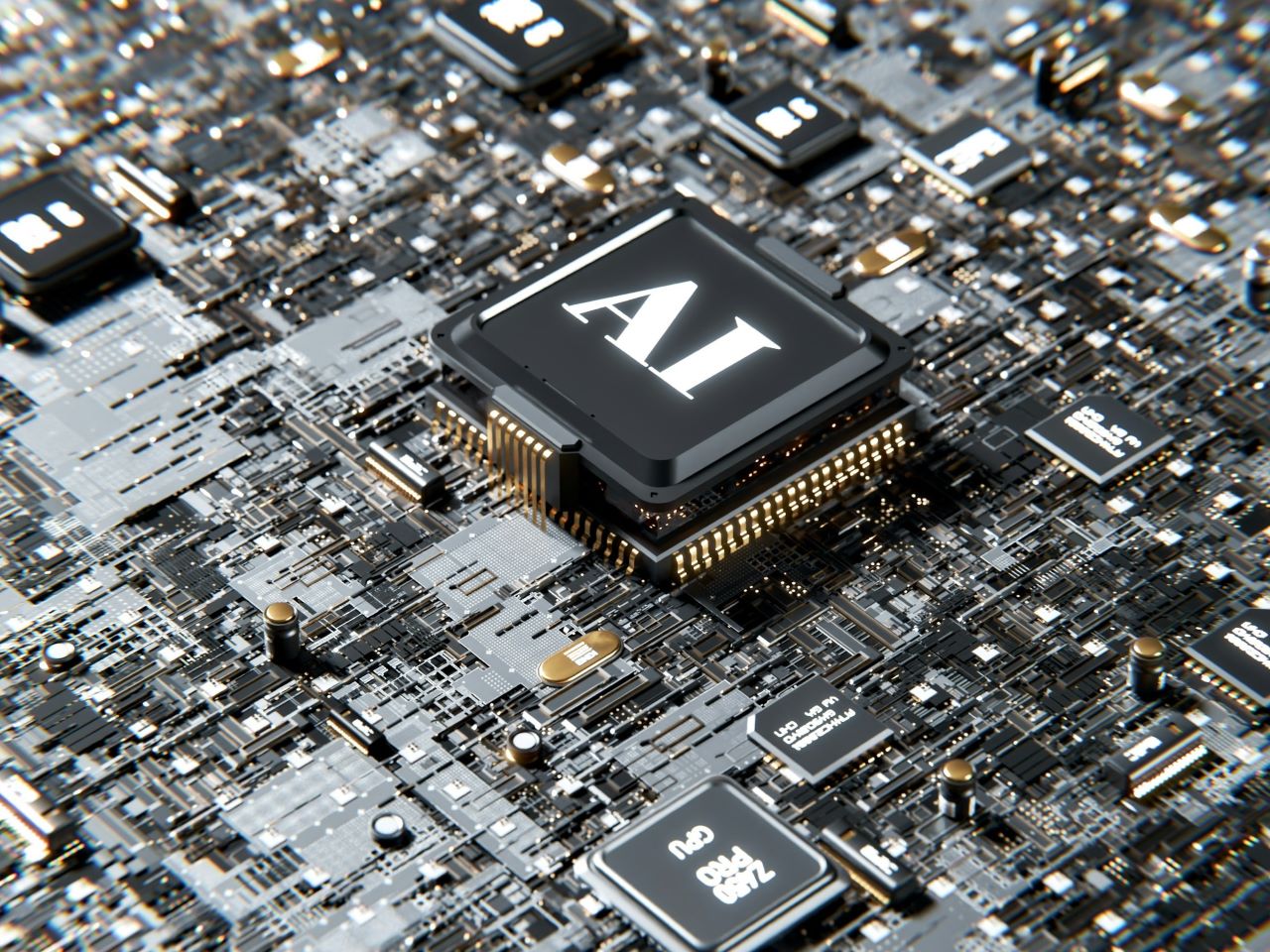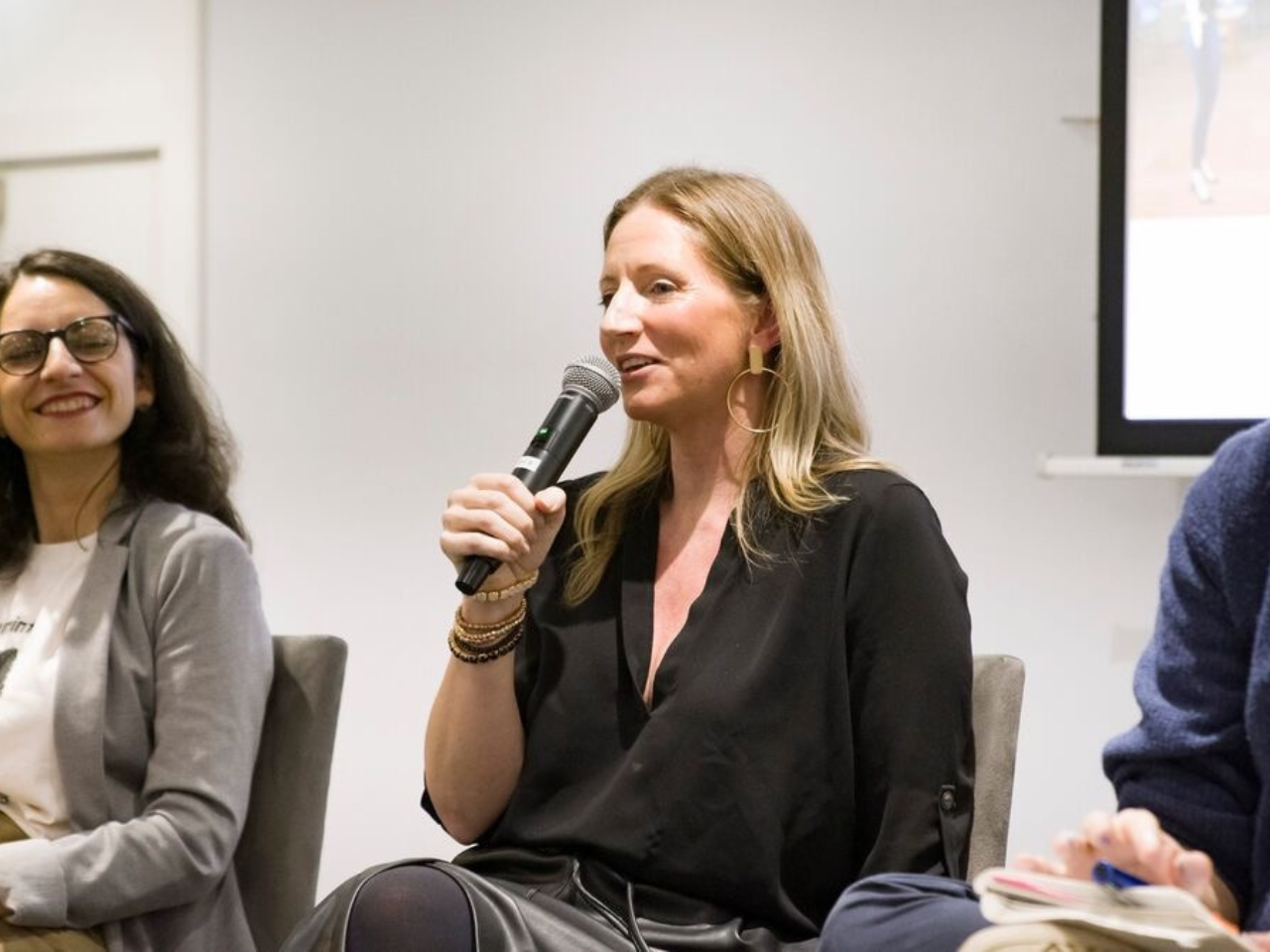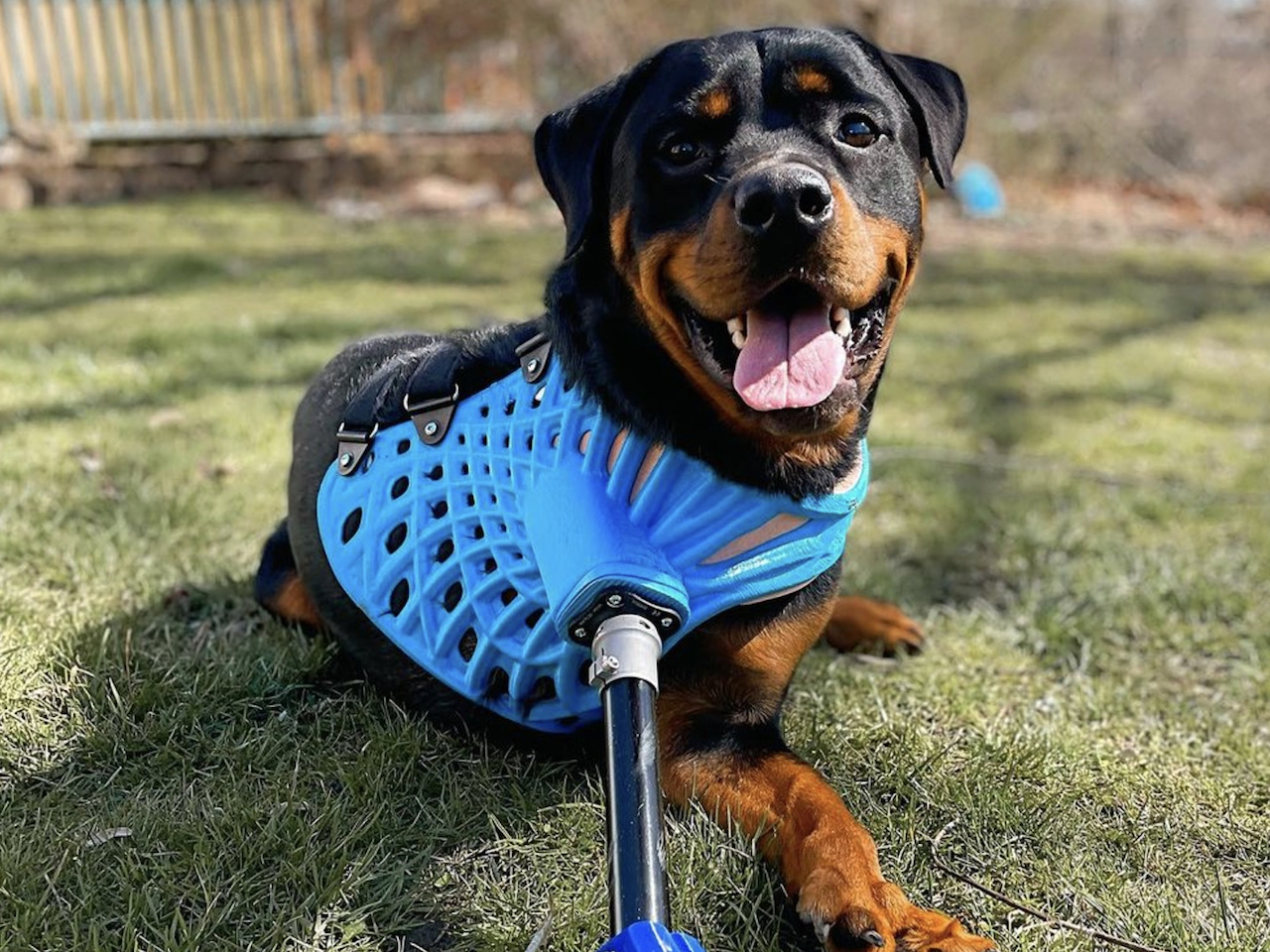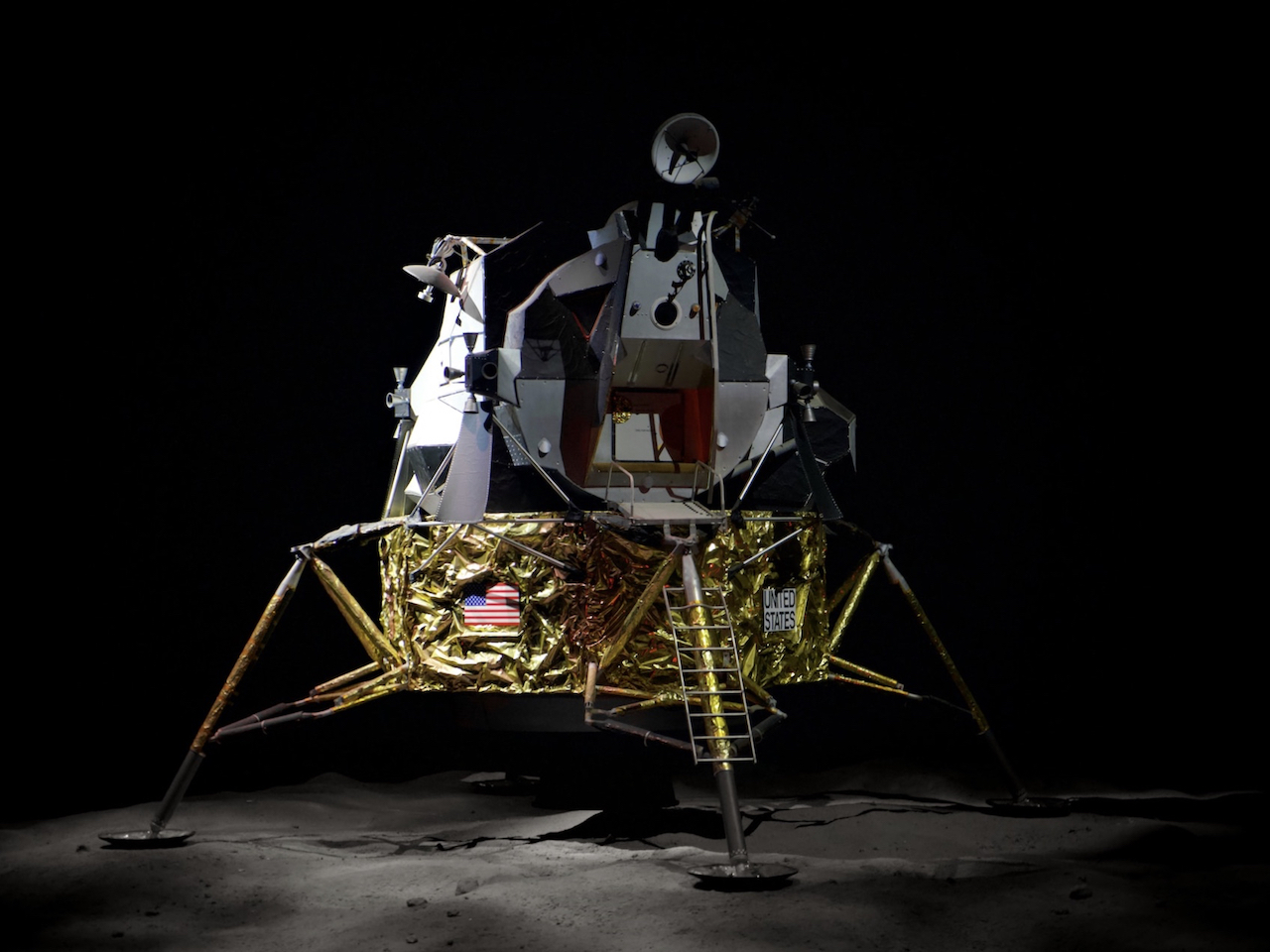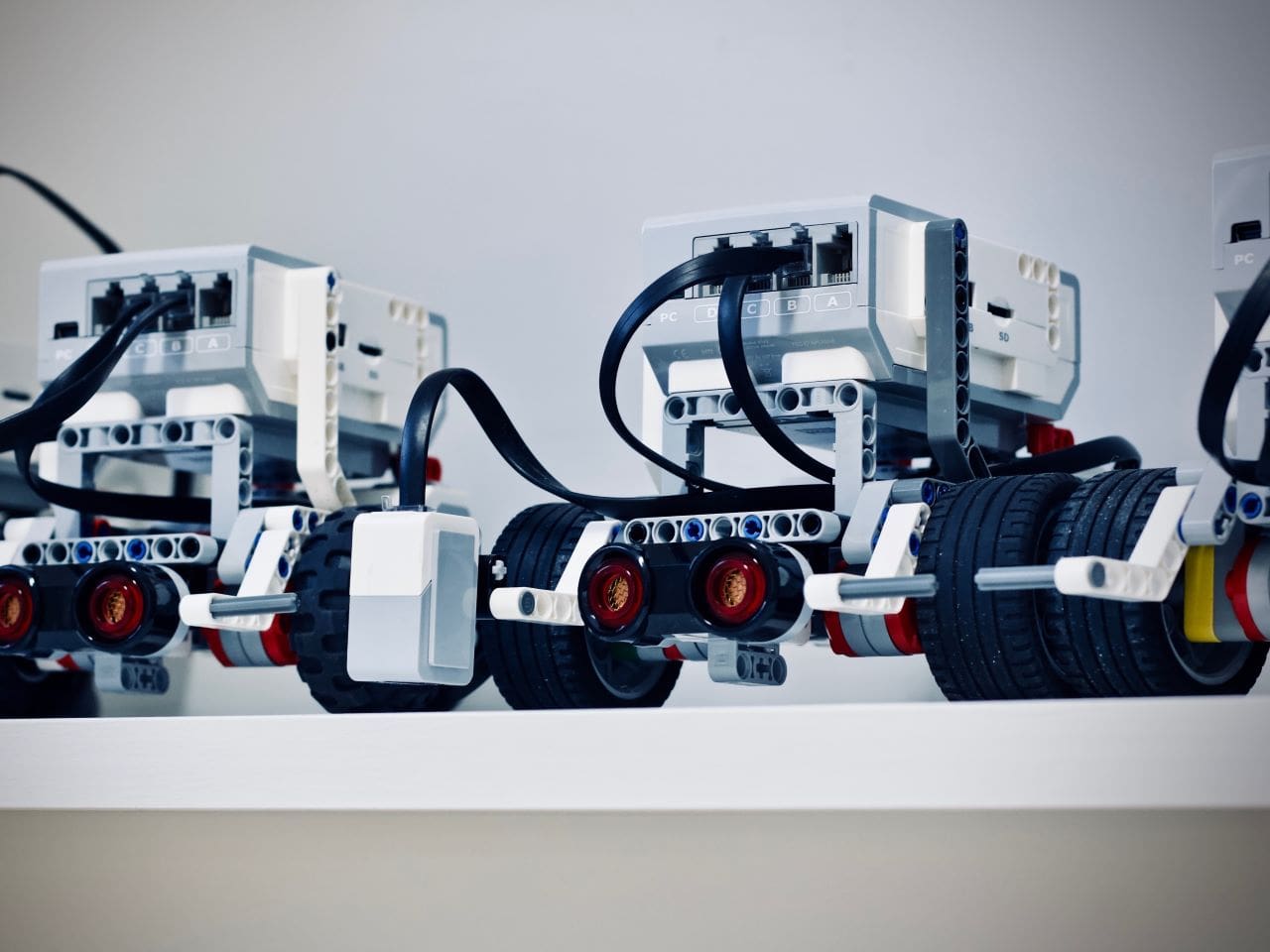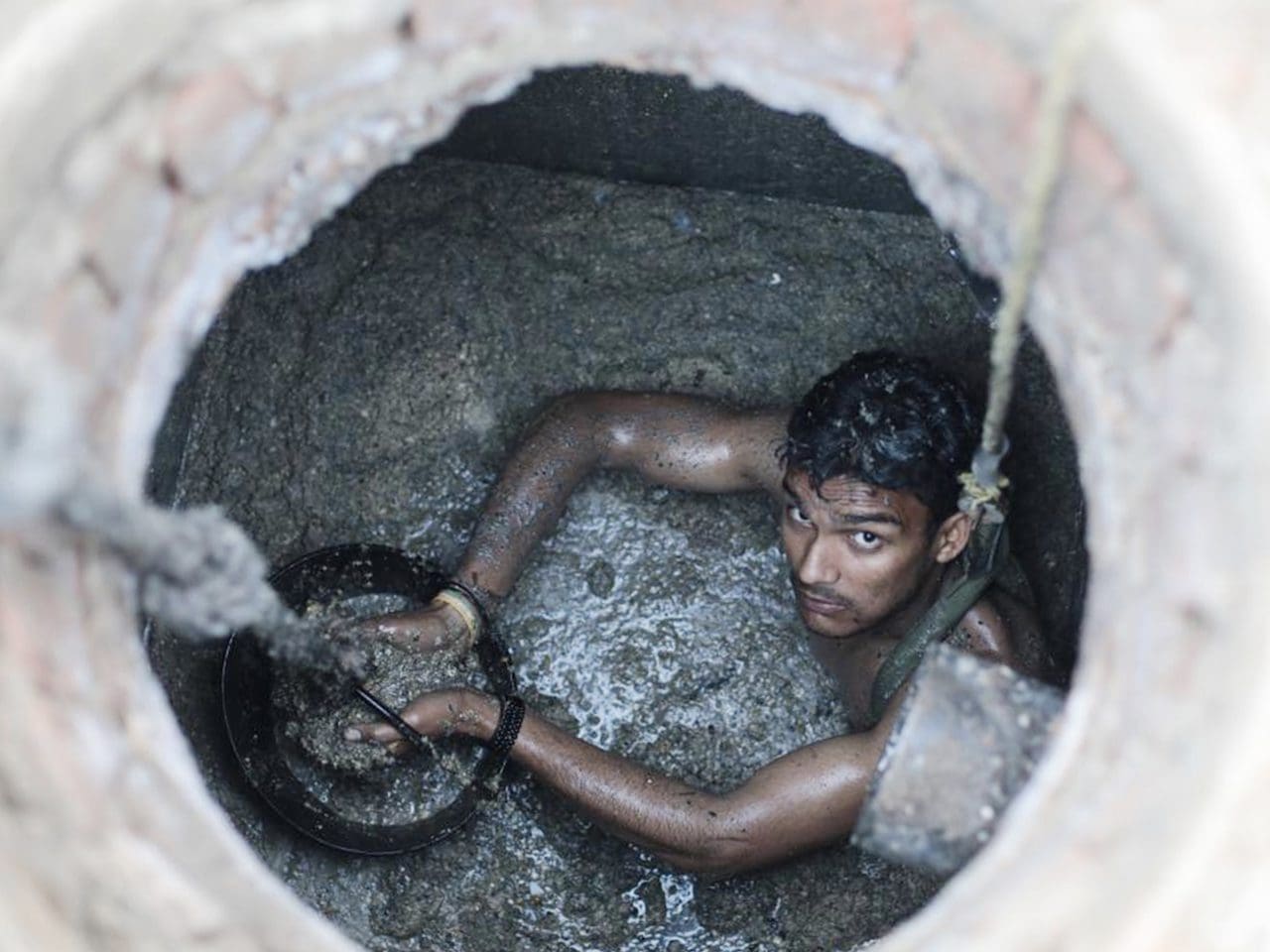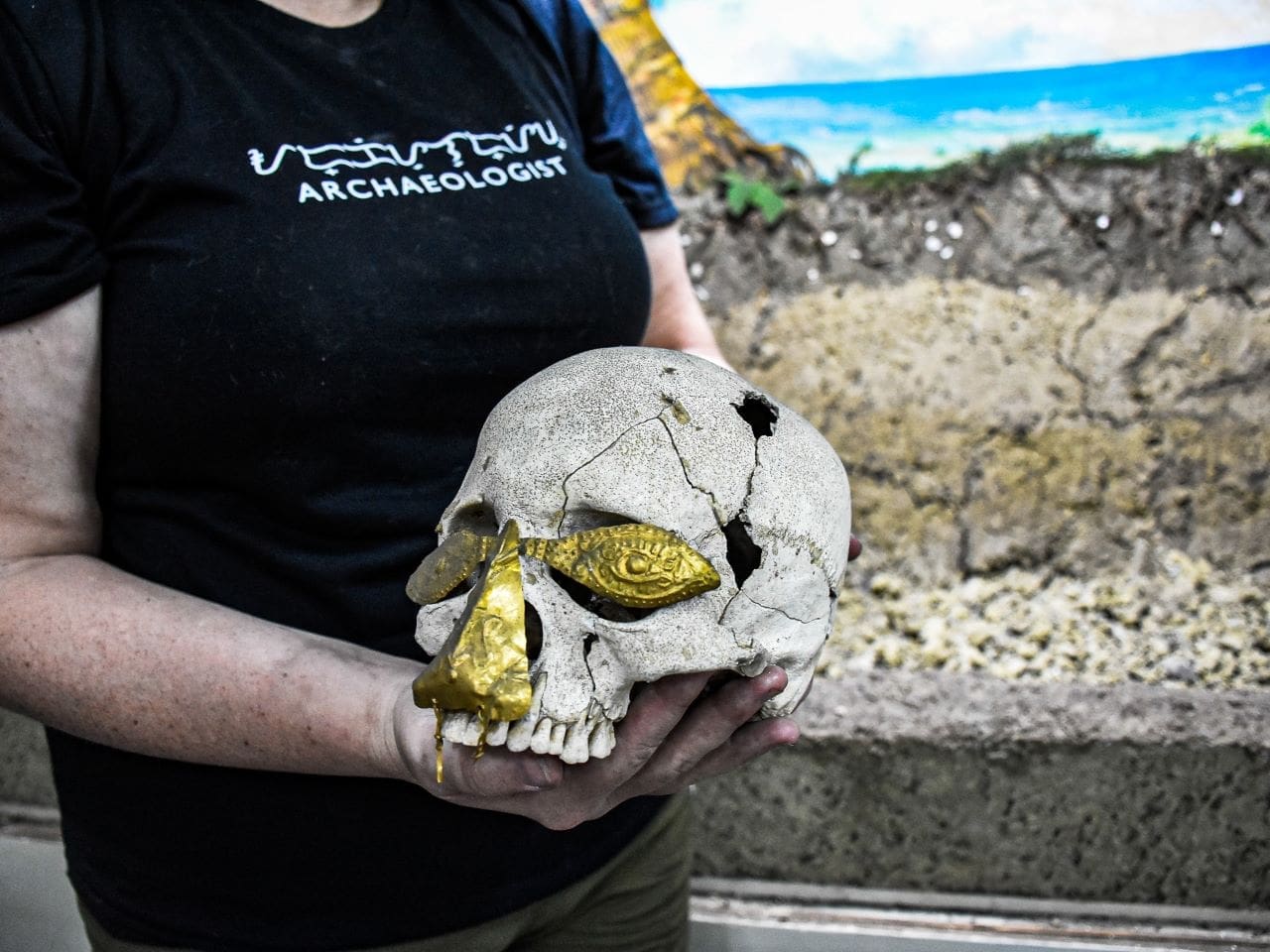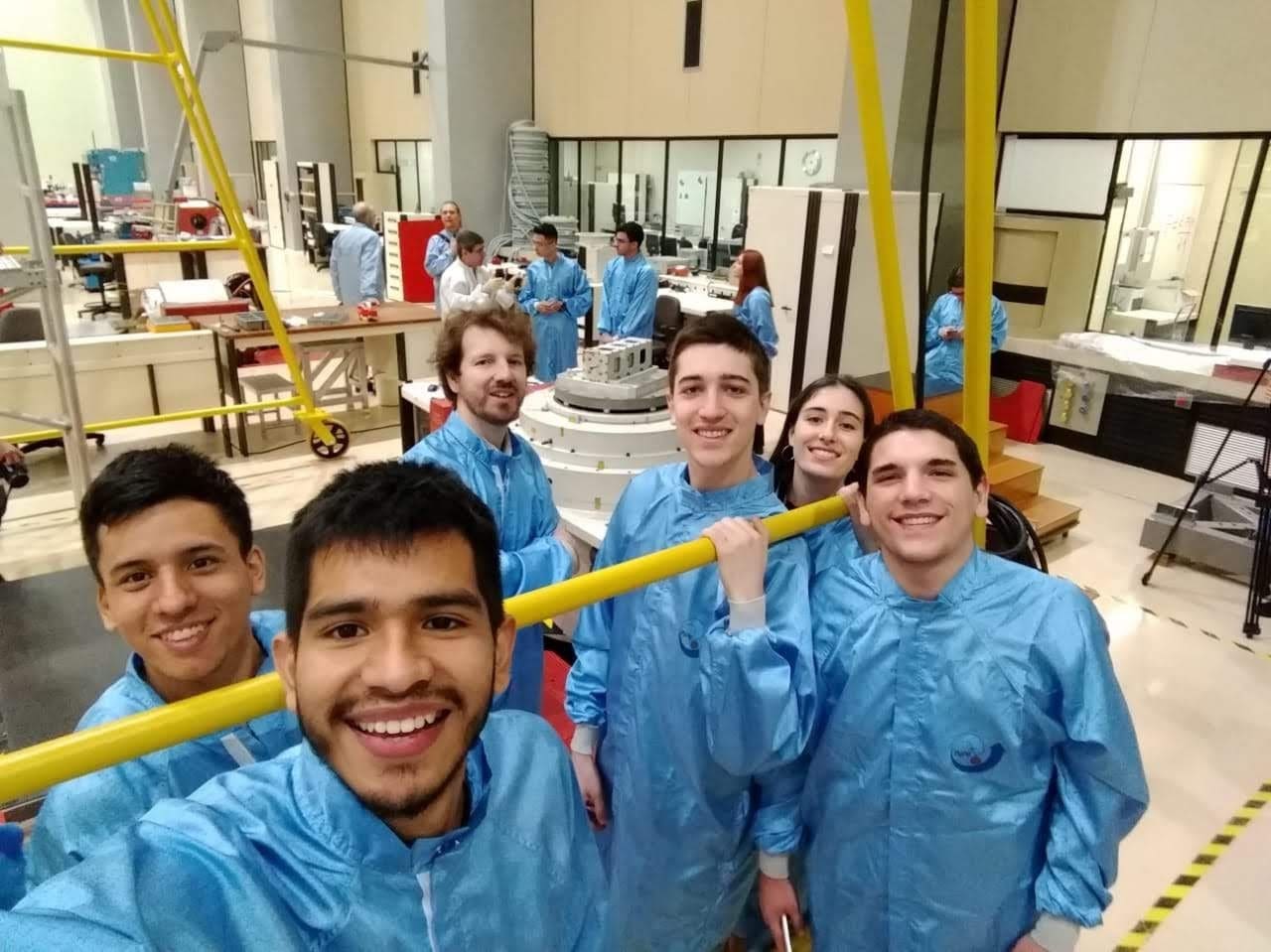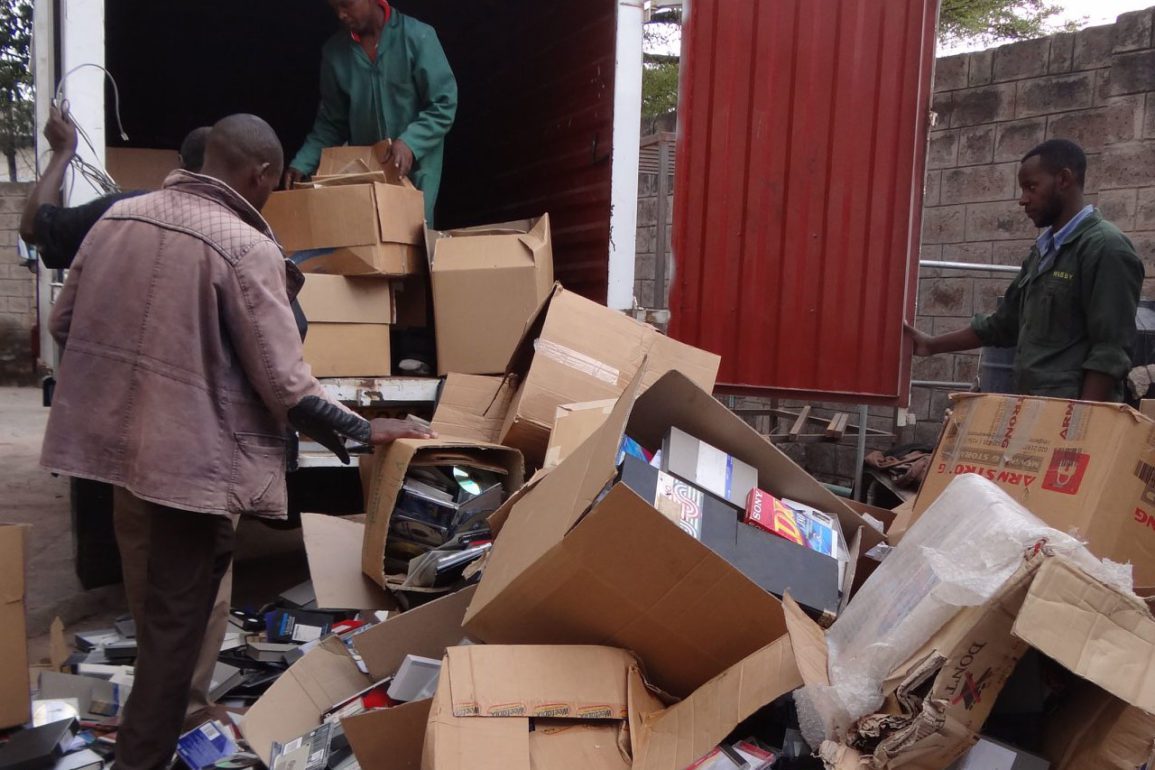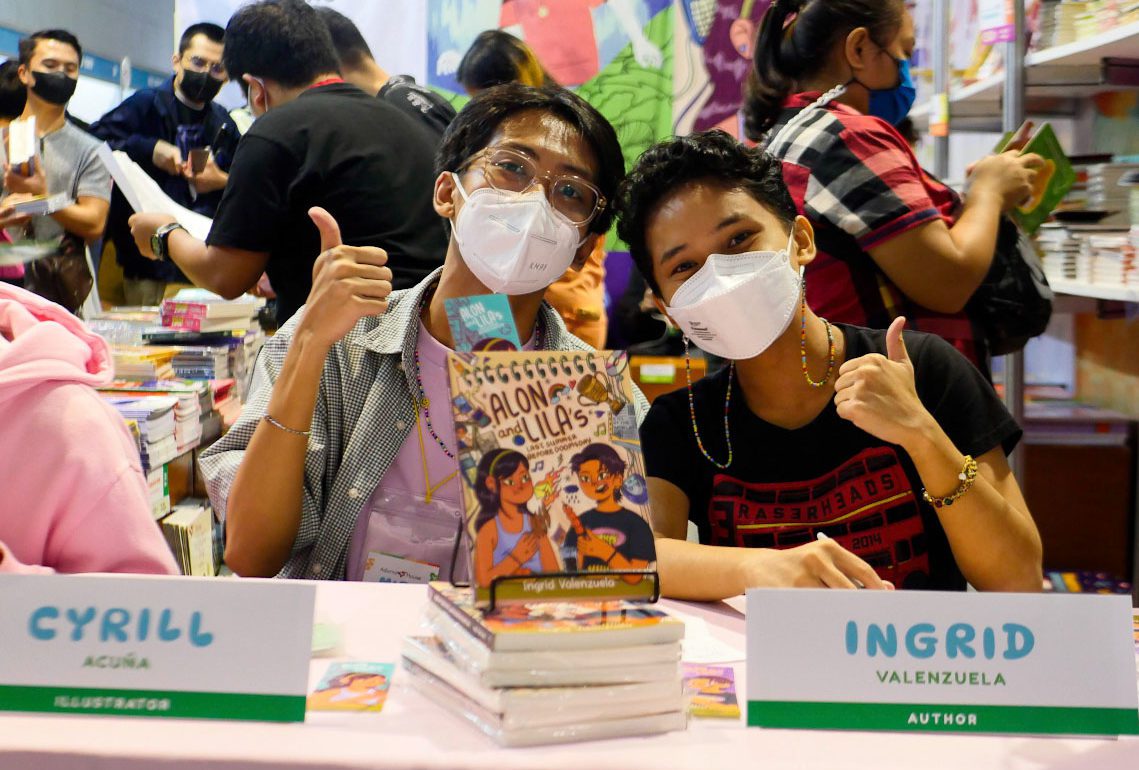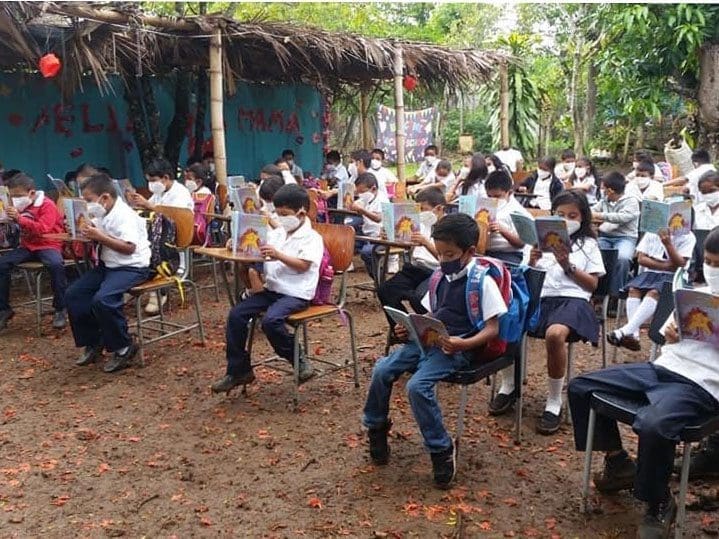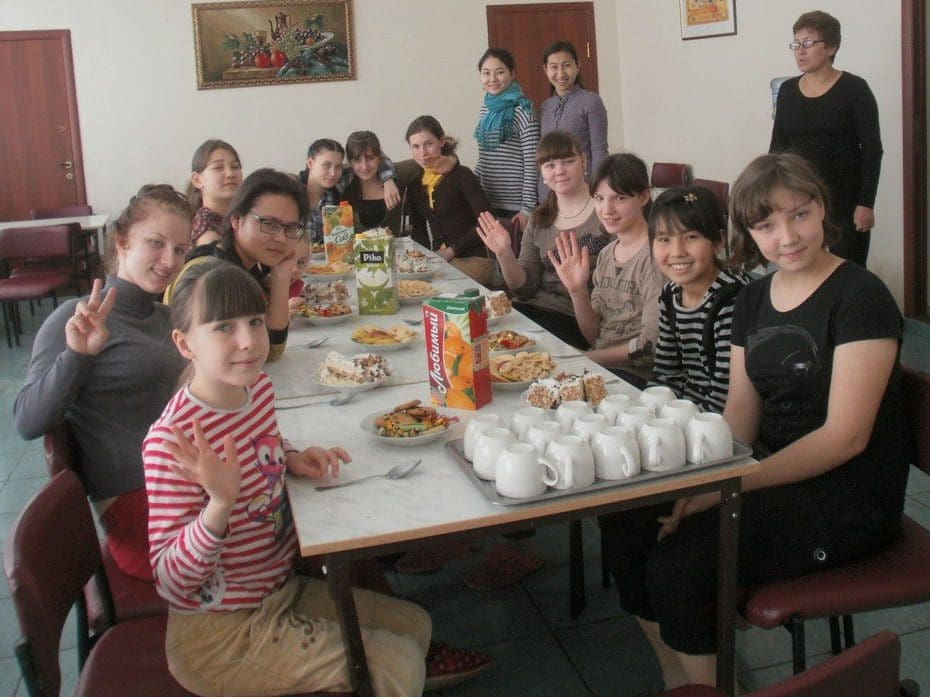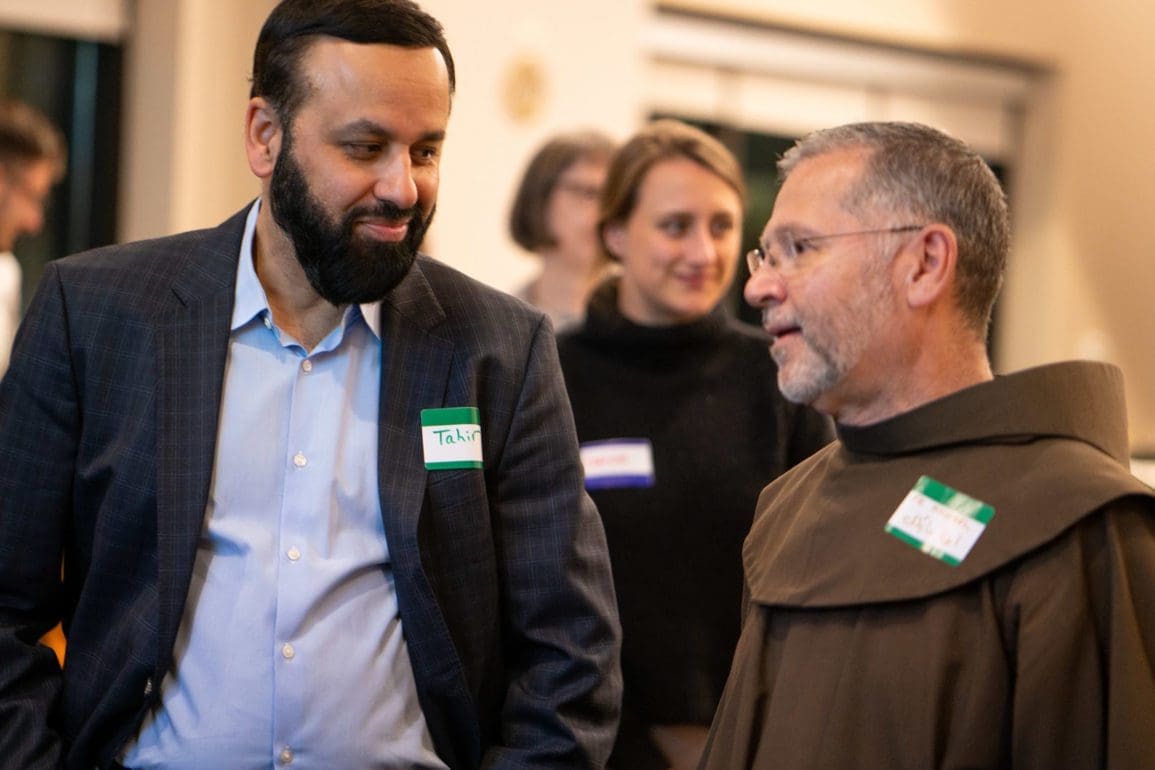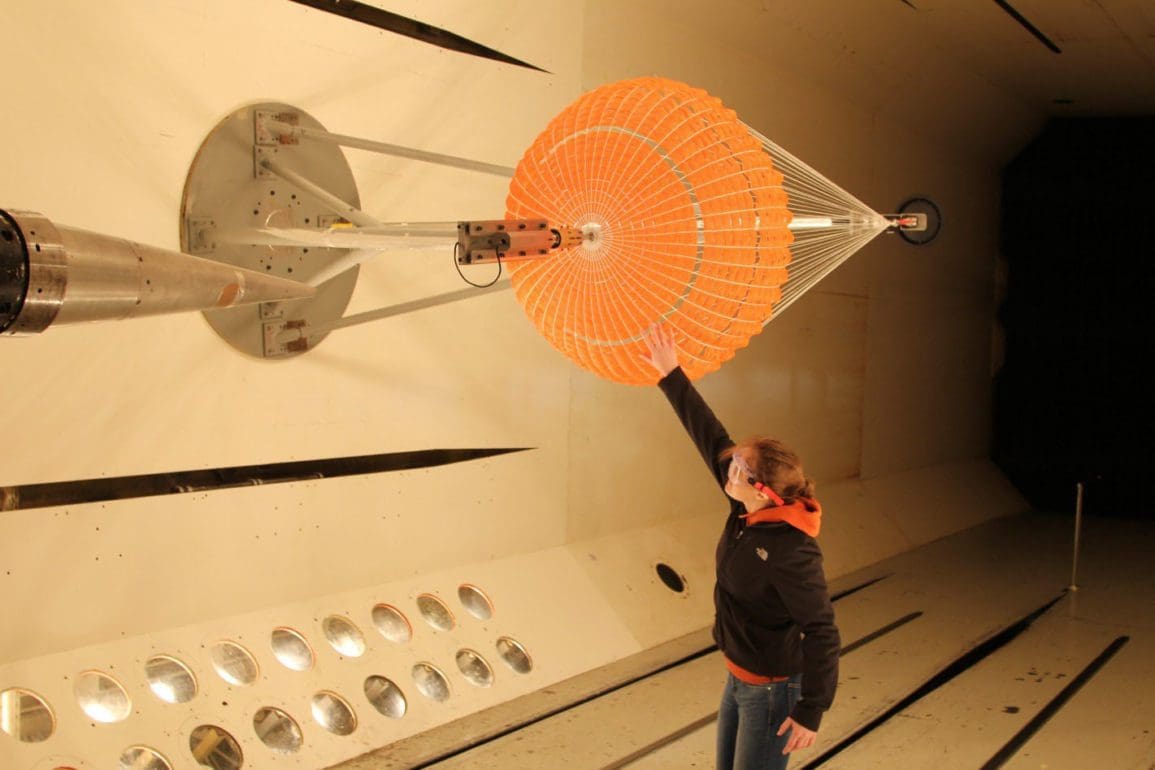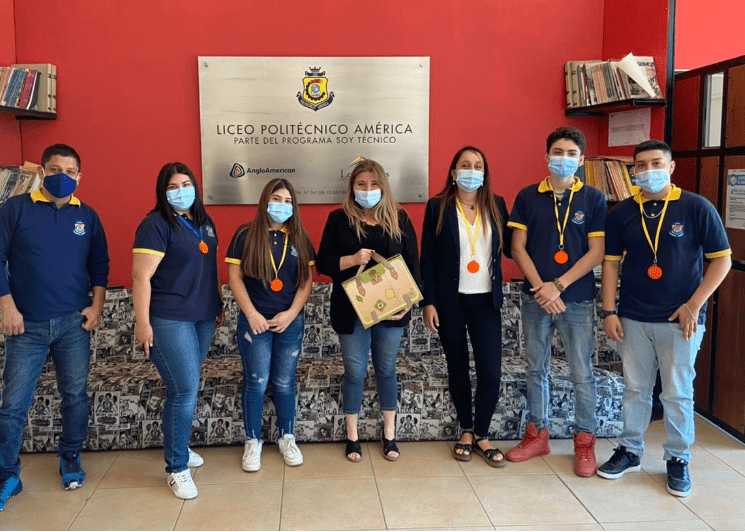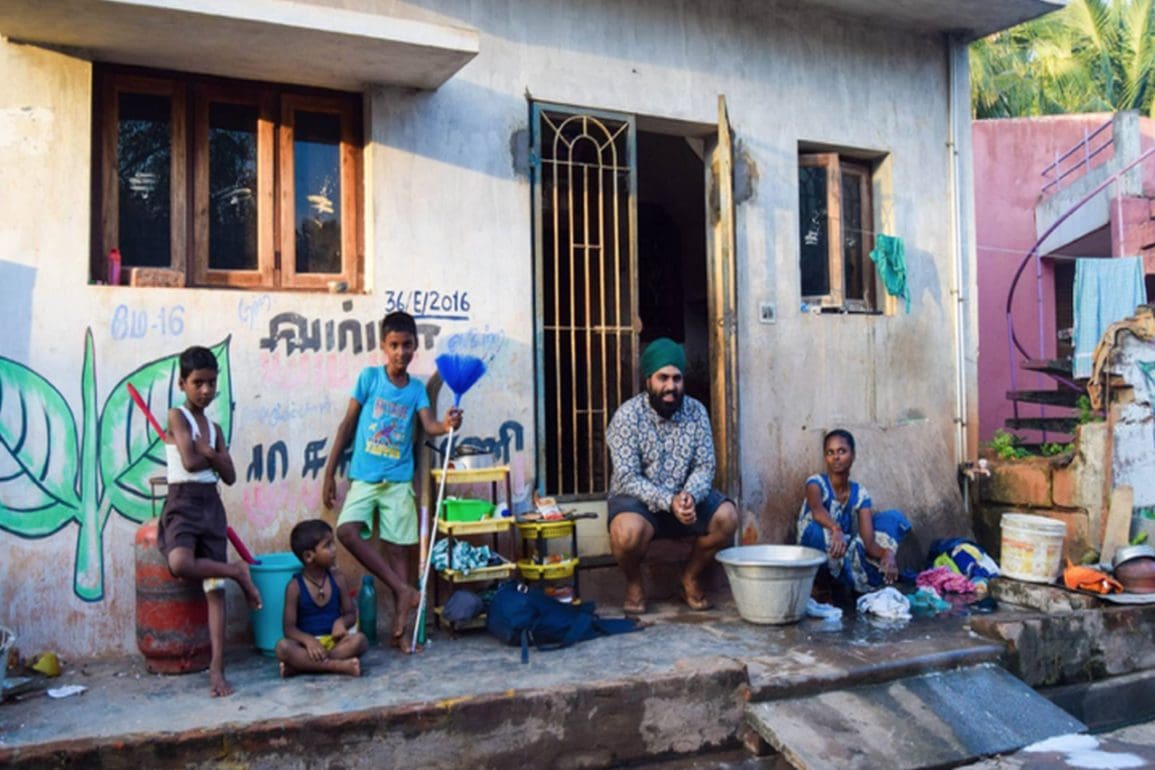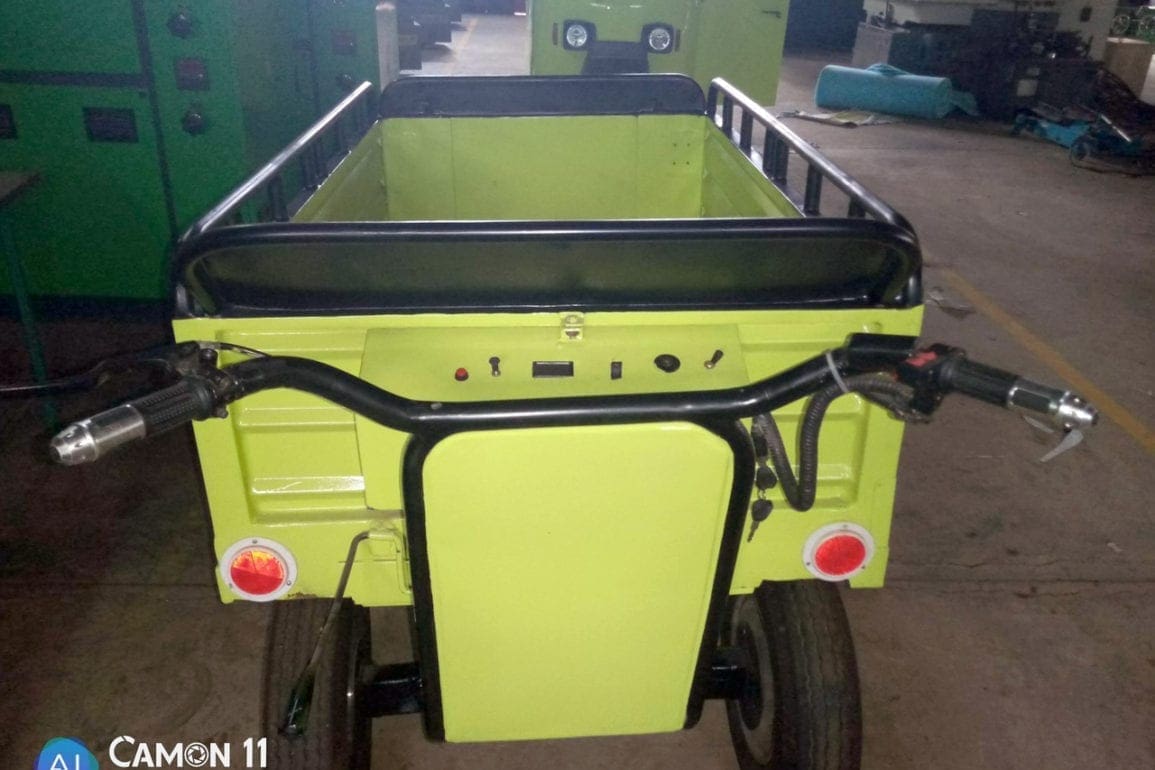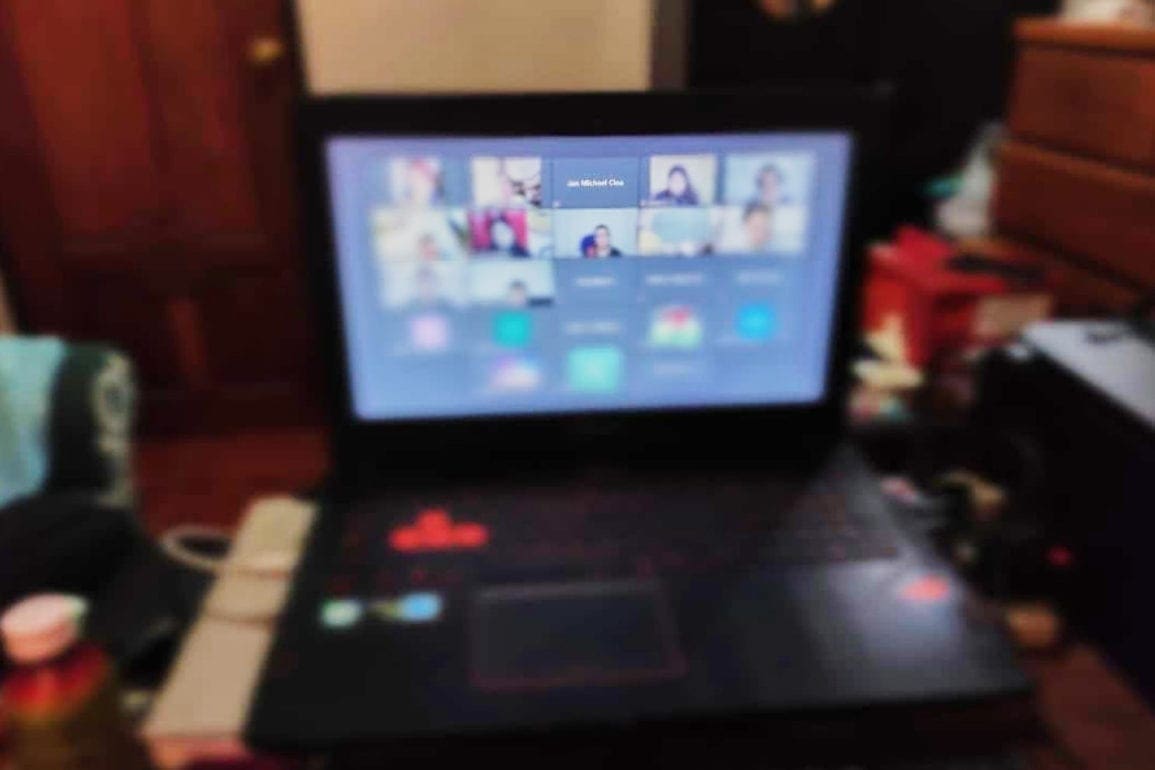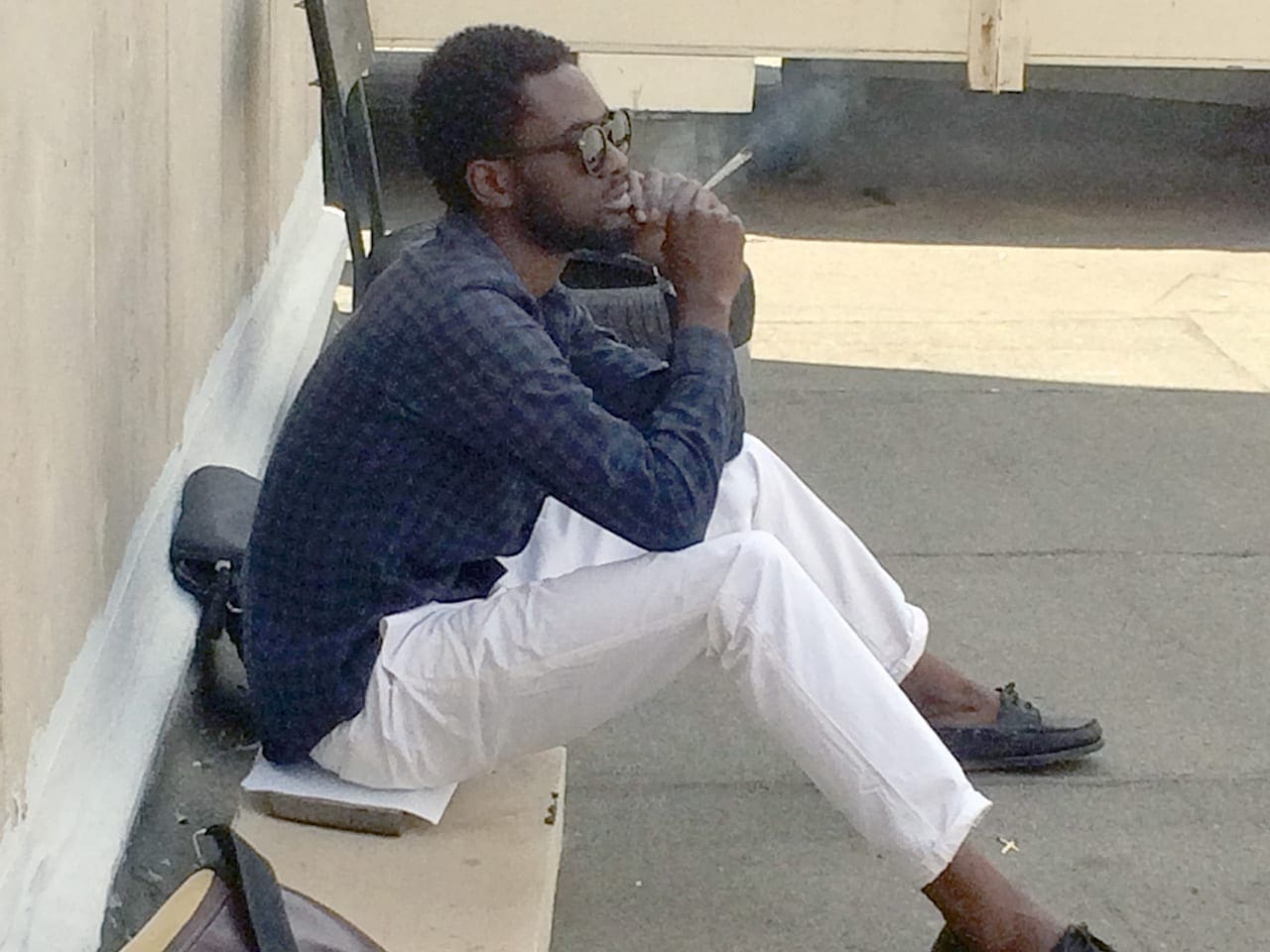Cybercirujas bridges digital divide, empowers underserved communities with refurbished computers
I vividly remember a young mother, around my age, arriving with her young daughter. They traveled from far away after a long train, bus, and subway ride, carrying dreams and expectations at every stop. When we finally handed her a computer, the little girl’s face lit up as she discovered it also had games.
- 1 year ago
November 25, 2024
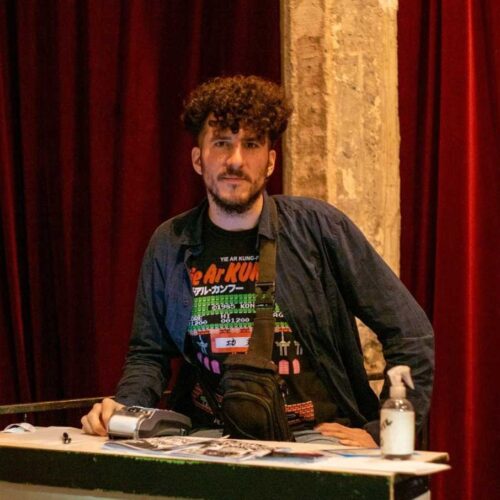
BUENOS AIRES, Argentina — From a young age, I took an active interest in recycling and repairing abandoned technology. With passion, I transformed basic electronic parts into complex machinery components. In my first job maintaining factory technology, I discovered how large corporations routinely discarded functional parts and products instead of repairing them. In response, I collected discarded parts, repaired them, and repurposed them into valuable tools for my community and myself. Eventually, this journey resulted in the creation of Cybercirujas, a community project.
Read more Science & Technology stories at Orato World Media.
Man bridges the digital gap, delivering repaired electronics to underprivileged communities
I am self-taught, having used Free software to empower myself and my community. Eventually, I began teaching others and became an activist, recognizing how technology opens doors while deepening inequalities. In low-income communities, where life can be challenging, I witnessed how technology served as both a blessing and a curse.
The COVID-19 Pandemic only widened the digital divide. I witnessed countless people, especially students and low-income workers, excluded from education and work due to a lack of access to technological resources. In response, Nicolás Wolovick, a friend and professor at the National University of Córdoba, and I launched a network to recover and redistribute unused electronic equipment. Prioritizing reconditioning electronic devices, we began delivering them to those who needed them most.
Diligently, we repaired electronic devices and extended their lifespan, reducing environmental impact and challenging the consumption driven by large technology corporations. We fought against planned obsolescence, which forces relentless consumption and produces millions of tons of electronic waste. With every piece of recovered equipment, we claimed a small victory over the throwaway system, providing digital inclusion to those excluded.
Successfully, we restored and distributed equipment for free, empowering people with the tools to advance in the digital world. Consequently, our project narrowed the digital gap in low-income communities. As we continue fighting for social justice, I worked toward a sustainable future for my community.
Cybercirujas unites Argentina, empowering communities with tech and sustainability
After the Pandemic, the project evolved into a thriving community. People across the country united around the idea, forming a federal network. Surprisingly, Cybercirujas rooted itself in provinces like Córdoba, Santa Fe, Misiones, and Buenos Aires, sparking incredible growth.
As we progressed, the Cybercirujas movement transformed into a hub where people learned about technology, free software, and environmental care through reuse. Expanding my role as an educator beyond the classroom, I shared technical knowledge about computers, advocating for responsible technology use.
Soon after, we organized workshops and events to address various concerns, which evolved into collaborative, community-driven initiatives. We organized Reparatones—open workshops where participants repaired their broken or damaged electronic devices alongside experts and volunteers. We also launched the Hardware People’s Pot, inspired by solidarity-based community meals. At the event, we shared tools and knowledge to repair technological equipment, fostering self-sufficiency and promoting recycling.
Additionally, we conducted workshops on Free Software, advocating for accessible, sustainable, and privacy-friendly technological tools. These sessions introduced alternatives to proprietary programs, often demanding costly licenses or restricting user data control. Extending the life of equipment, we empowered communities and individuals with limited resources through essential knowledge.
Cybercirujas events transform into creative hubs for learning technological innovation
Over time, the Cybercirujas movement transformed events into vibrant discussion, connection, and learning. Each event transformed into a space for learning and technological empowerment. Enthusiasm and creativity buzzed through the events, creating a vibrant, communal atmosphere. Music from a recycled Commodore 64 [an 8-bit home computer introduced in January 1982] filled the air, while graffiti artists used their talent to emphasize the importance of the cause.
Activists, curious individuals with no prior experience, students, families, teachers, and single heads of households traveled long distances to obtain refurbished computers. Undoubtedly, their presence highlighted our work’s impact and the transformative power of purposeful technology.
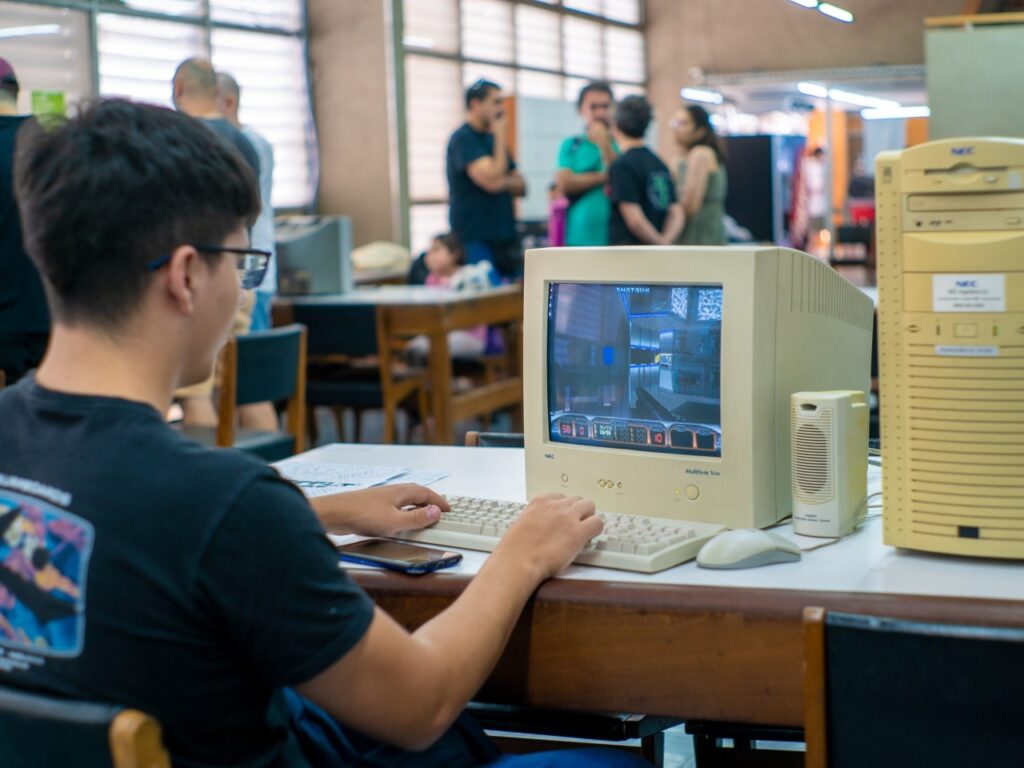
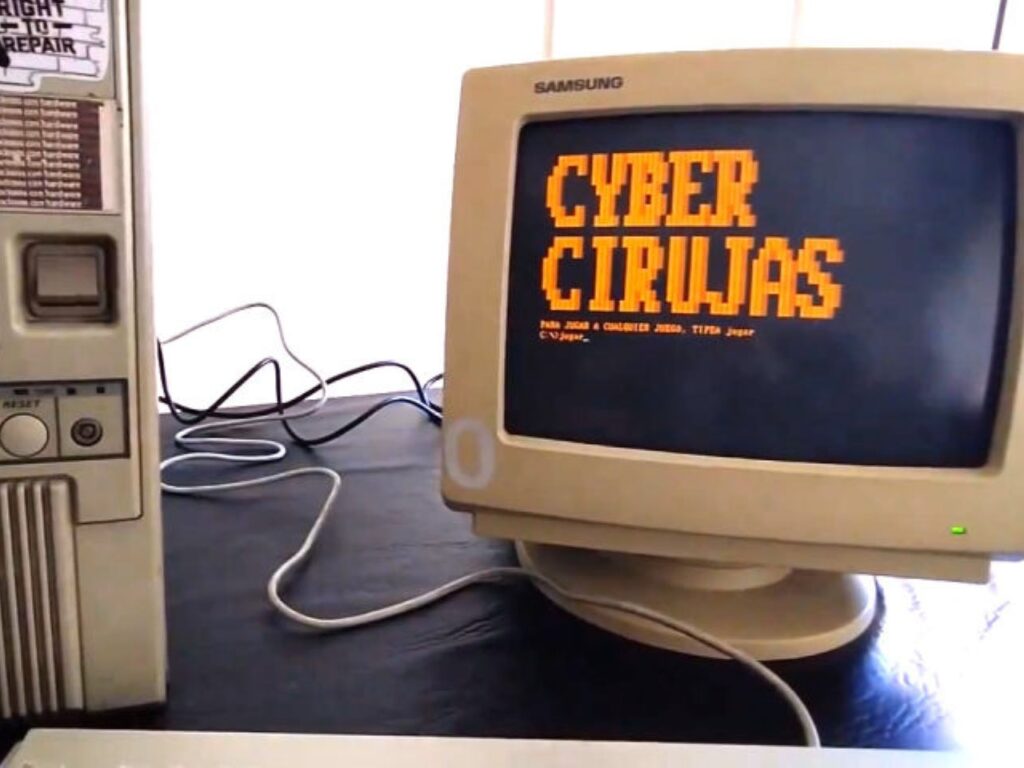
Remarkably, my coworkers’ unique and experimental creative spirit stunned me. At one event, I watched Marcelo build a video game controller using a deodorant ball, while Gonzalo and Nahuel hacked payment terminals to turn them into game controllers. These alternative devices, almost like museum pieces of the future, expressed a bold and free challenge to how we interact with machines. Their creativity and technical skills demonstrated that technology is a form of art.
The communal experience and the opportunity to make a tangible difference in people’s lives felt incredible. I stood amazed as combining action with learning sparked critical thinking. Empowering others turned into an act of resistance. I felt immensely satisfied seeing technology become accessible and useful for everyone, rather than an exclusive consumer good.
Sergio turns his struggles into service, helping families through technology
One day, the disassembled equipment in the hack lab overwhelmed our hands. Then, Sergio appeared—a man with a tired look and slumped shoulders, carrying a story that hinted at a complicated past. Drawn by a newspaper article, he arrived from the southern suburbs of Buenos Aires as he needed a simple computer for work and study. As he spoke, his eyes revealed a mixture of hope and resignation, a look familiar to anyone who faced many rejections.
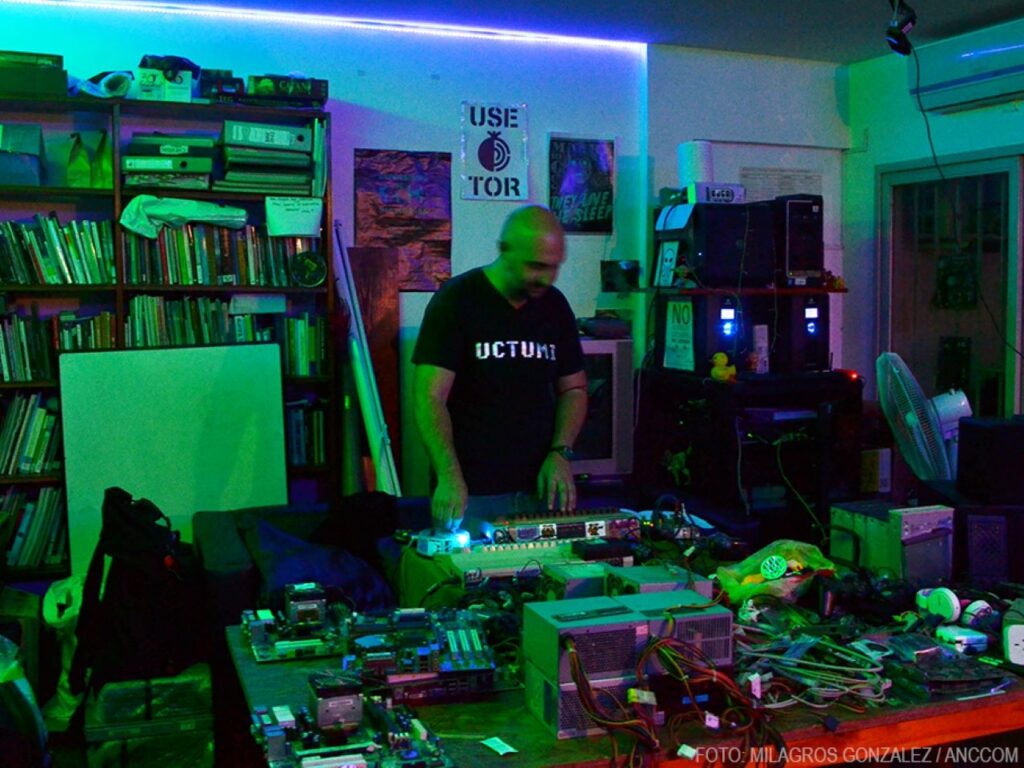

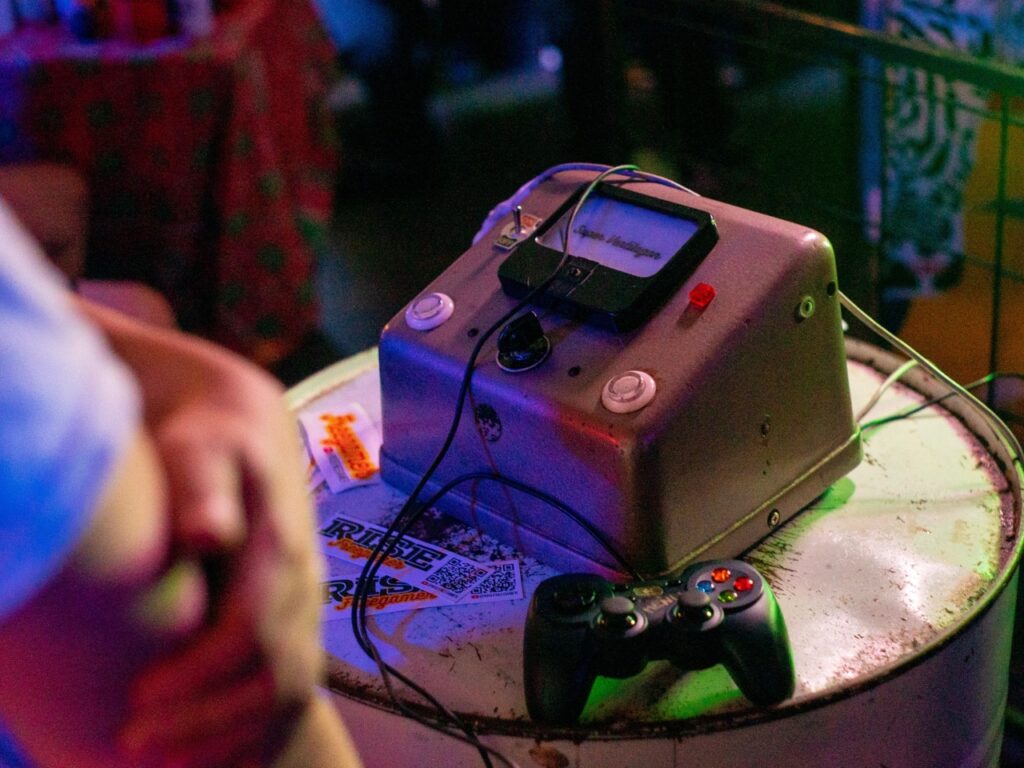
Eagerly, Sergio shared his story with me, describing his long trips by bus and train. With his children, he journeyed from afar, seeking a dream of a better life. When I handed him the computer, I saw the weight lift from his shoulders. As he walked away with the machine, his children’s smiles lighted the way. At that moment, I realized the CPU opened a door for them when all the others seemed closed.
Years later, Sergio became a pillar of our movement, not just a user. He recycles, repairs, and delivers computers to other families like his own, always sharing the story of his first encounter with us. Watching him solder circuits with steady hands amazes me. A recycled computer sparked change in him, fueling a lifelong conviction. Every CPU he hands over carries his conviction and inspires a smile.
Refurbished computers unlock new opportunities and hopes for struggling families
In particular, I will never forget when a family from Malvinas Argentinas [a county in Buenos Aires Province] arrived to pick up a computer. Although they traveled 60 kilometers, the journey felt eternal for them. They took two buses and a train, arriving with their two children in their arms and a determination which reflected a much deeper need. When they saw the computer, the mother broke into tears. For them, the computer provided the chance to study, work, and stay connected in a world that left them behind.
While I helped the father load the CPU and monitor, the kids held the mouse and keyboard tightly, as if gripping the keys to a new world. As the kids clung to their parents while carrying the equipment, I saw the impact of the digital divide and the opportunities lost without technology. Saying goodbye, I witnessed gratitude and renewed strength reflected in their eyes. I knew the journey home would be long, but the computer would unlock avenues once beyond reach. Certainly, it did not just involve giving; it sparked a brief moment of equality, too often missing.
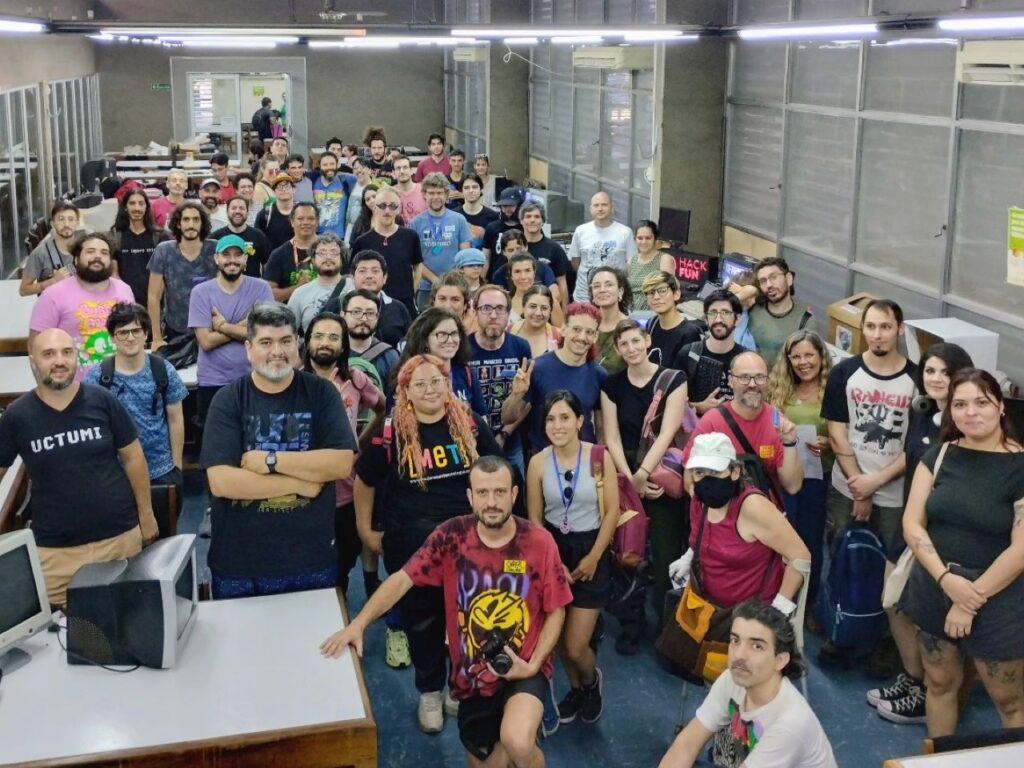
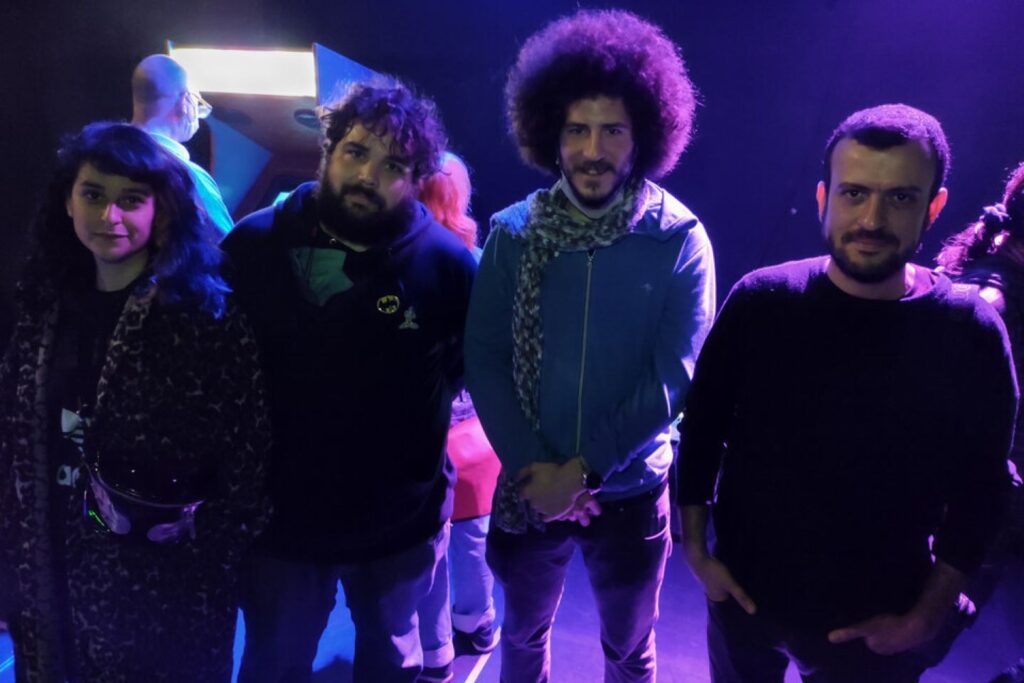
Most people who come to us for computers are women including single mothers and heads of households. I see them arrive with their children in hand and a look of determination in their eyes unlike anything else. Their strength and desire to change the course of their lives, even if the road is uphill, always inspires me. I vividly remember a young mother, around my age, arriving with her young daughter. They traveled from far away after a long train, bus, and subway ride, carrying dreams and expectations at every stop.
When we finally handed her a computer, the little girl’s face lit up as she discovered it also had games. Silently, the mother felt the weight of a new opportunity: a computer to help her work, study, and offer her daughter entertainment and learning. During our farewell, the mother told me the long and arduous return trip now carried emotion and purpose.
Firmly, she held the monitor, while the girl embraced the CPU as if it were a gift. Consequently, the computer became more than just a tool; it marked a change of course. It represented a possibility, not measured in numbers, but felt in the deep heartbeat of a mother who knew everything could change from then on.
Cybercirujas volunteers revitalize Buenos Aires library with donated tech
One rainy afternoon, Cybercirujas volunteers arrived at a popular library on the outskirts of Buenos Aires. The librarian, an older woman with a tired but determined look, greeted them warmly. She explained how the space became a refuge for the young people of the area, who found books and community activities as an escape from their difficult environment. However, the worn and obsolete computers no longer worked properly, limiting access to information and learning opportunities.
Attentive to the woman’s words, the volunteers unfolded the donated equipment: CPUs, monitors, keyboards, and cables. The librarian watched with restrained excitement, imagining the changes these new resources would bring. As young people began to arrive, they were surprised to see the equipment shining under the dim lights of the library. Some approached timidly as we showed them how to use the computers. Soon, people filled the computers with searches for information, homework, and laughter shared in simple games, transforming the atmosphere into something warm and lively.
As they said goodbye, the librarian felt moved and thanked the volunteers. She knew the donation was more than technology; it was a seed of hope. Ultimately, this gift created a space where a generation could learn and dream. As I left, I turned and saw young people sitting in front of screens, connecting to the world beyond their borders. Later, the library began offering workshops using those computers, creating a new space for learning.
Cybercirujas advocates for a more just future, using technology to bridge gaps
Today, Cybercirujas represents much more than computer repair; it provides an opportunity to question and transform our relationship with technology. It also promotes social justice by providing refurbished computers to individuals and families who lack access. Together with my team, we provide digital inclusion tools, helping people advance their education and access job opportunities.
As more people join the cause, the Cybercirujas community builds collective awareness of responsible consumption and sustainable technology use. The way the project connects people nationwide to create positive change compels me to expand the movement even more. Witnessing the impact of a computer on someone’s life strengthens my confidence, pushing us closer to our goal.
Currently, technology is designed to become obsolete every year, leaving people as spectators of something they do not understand. Fighting against this challenge is tough, especially in Argentina, where people often prioritize other issues over them. However, every story, computer delivered, journey, and effort reminds me it is worth it. Without a doubt, it is not just about machines; it is about social justice and offering opportunities people would not have otherwise. Every delivery, every talk, and every day of repair represents a victory in the struggle for a more just and conscious world.
The community’s dedication and efforts inspire me to keep going, even though there is still a long way to go. I am confident I will continue fighting for responsible consumption to bring change for everyone. In Cybercirujas, I find a vibrant and supportive community, sharing my vision of a more just and conscious world. I commit to the project as I strongly believe technology should serve people, not big business. Every interaction, every story of someone receiving a refurbished computer, reaffirms I am doing the right thing. Through a strong sense of justice, I strive to find balance in this chaotic world.

